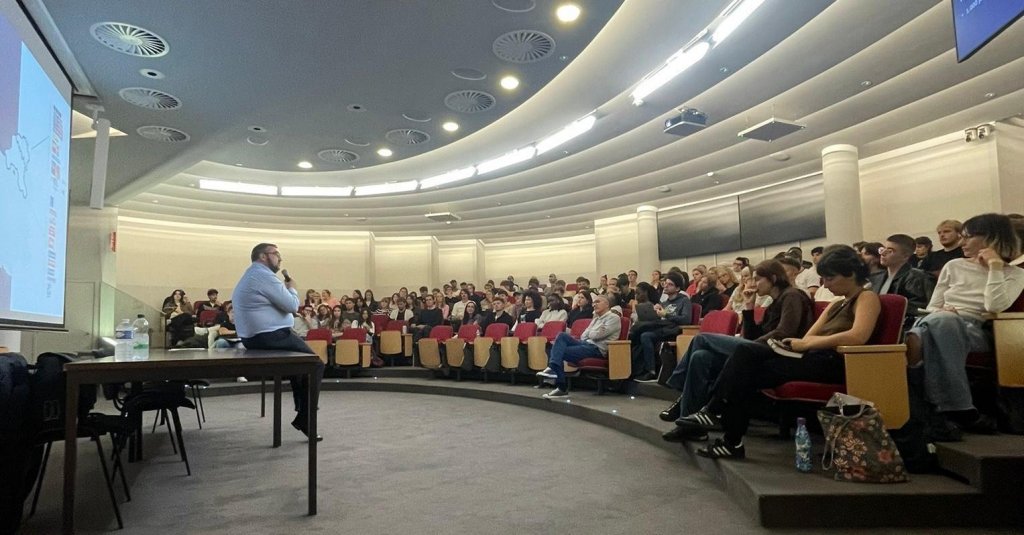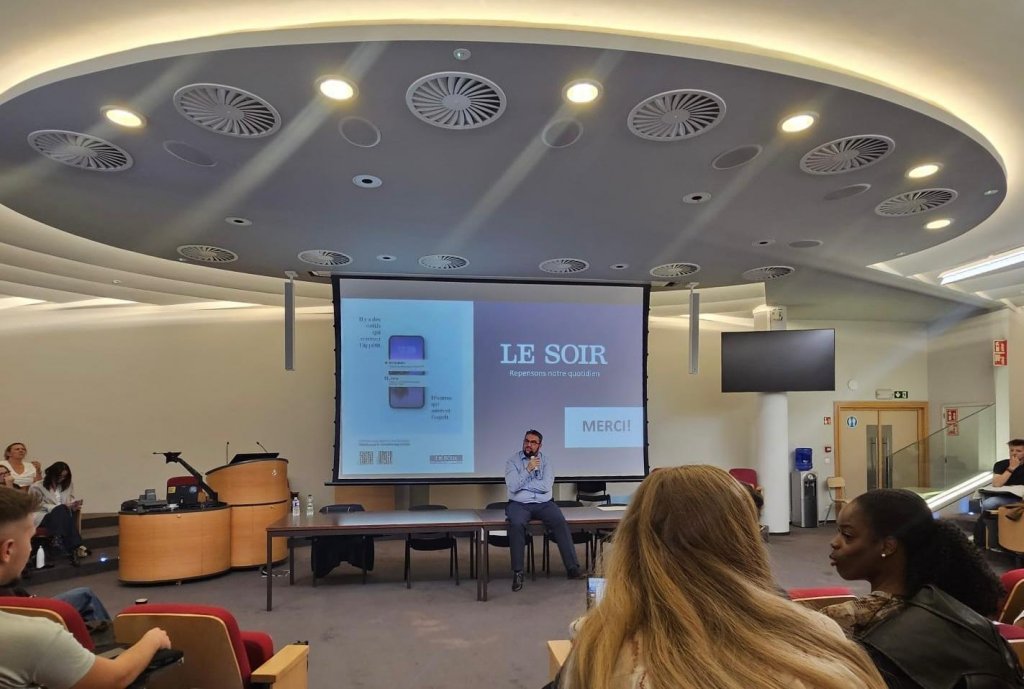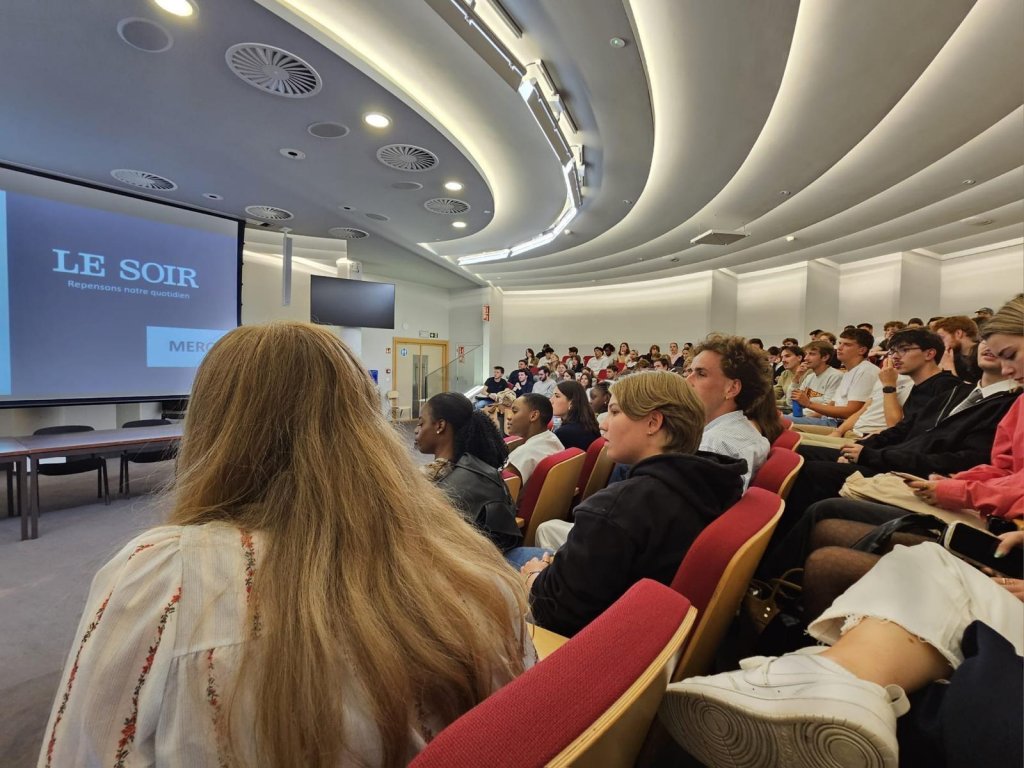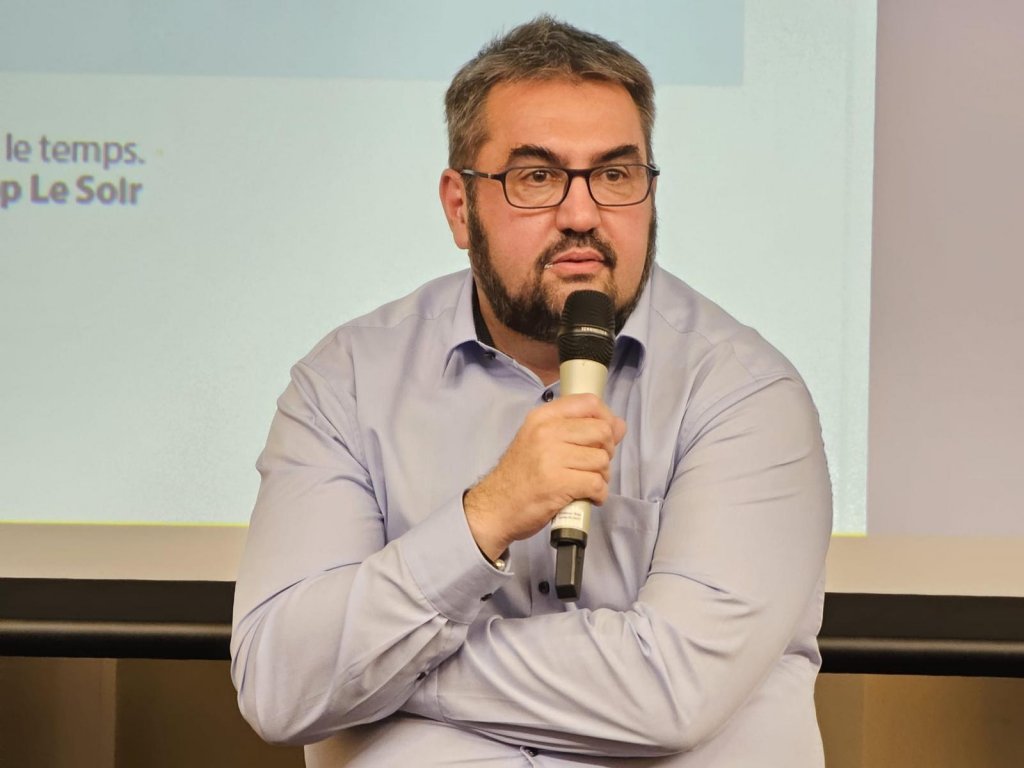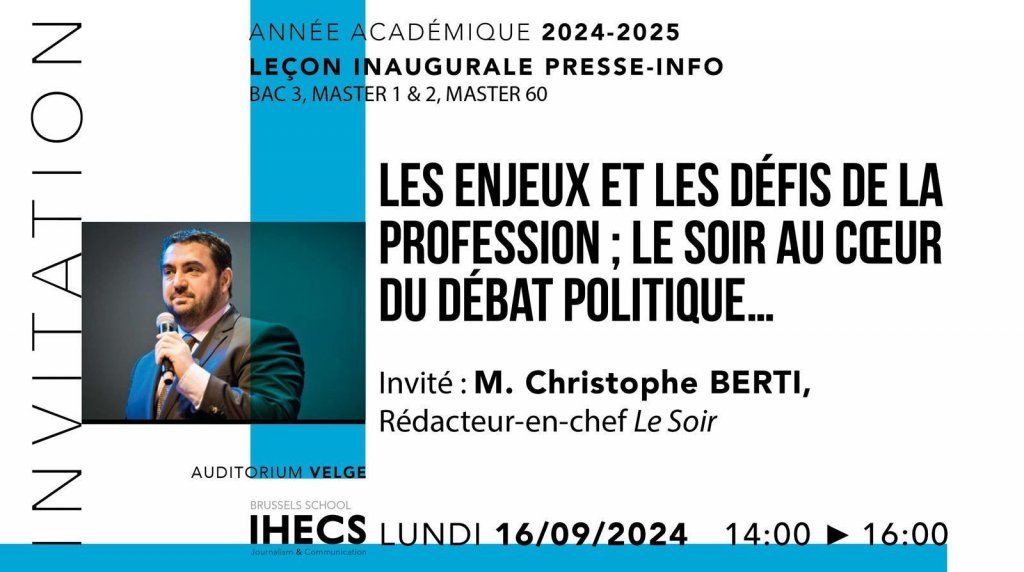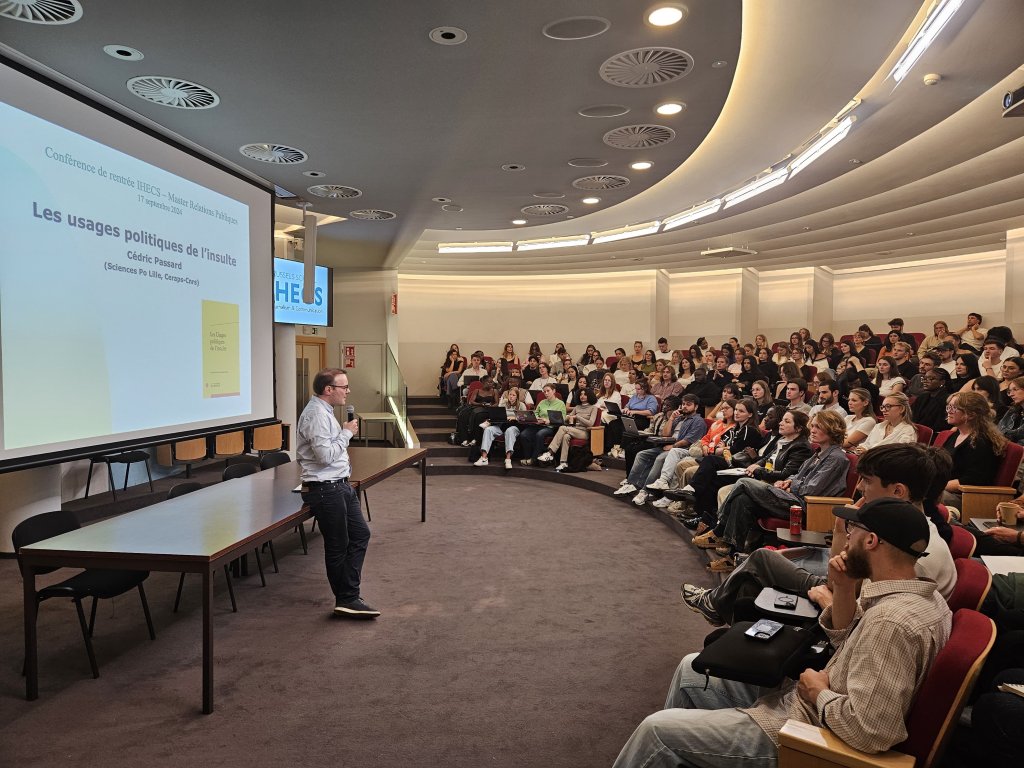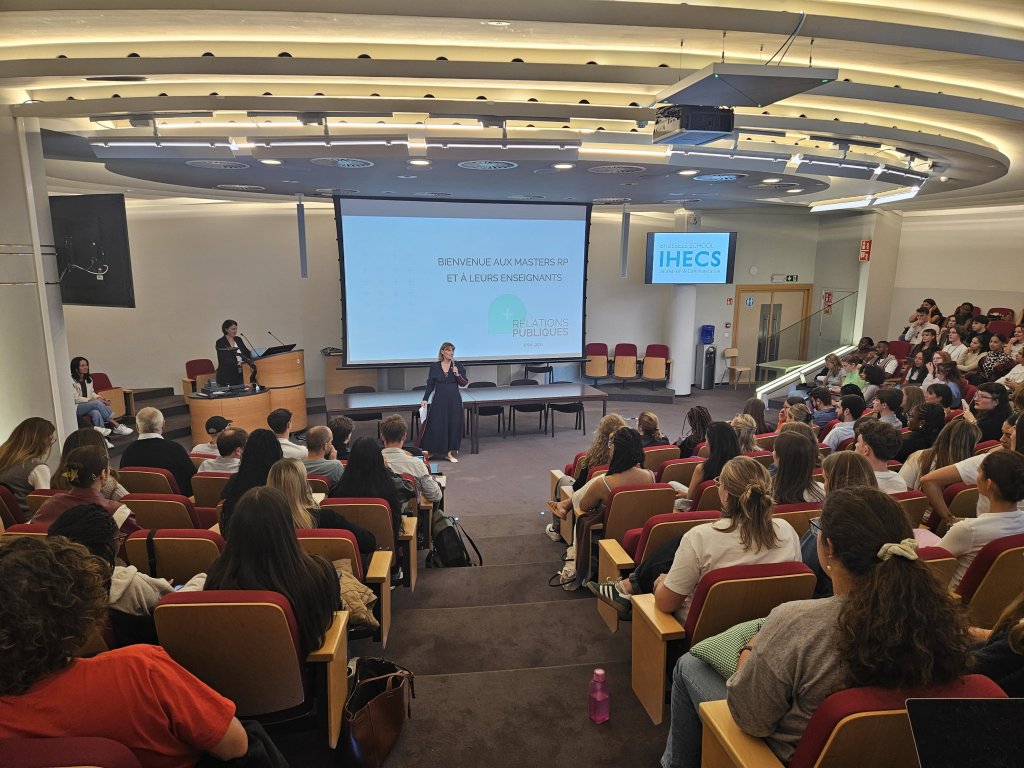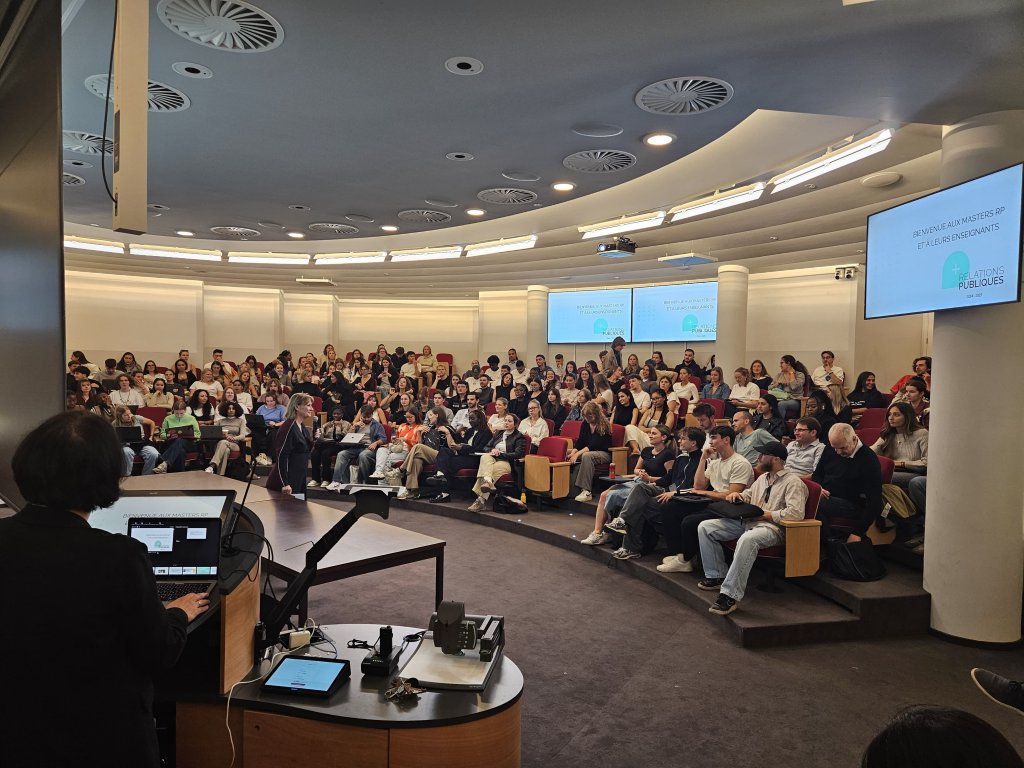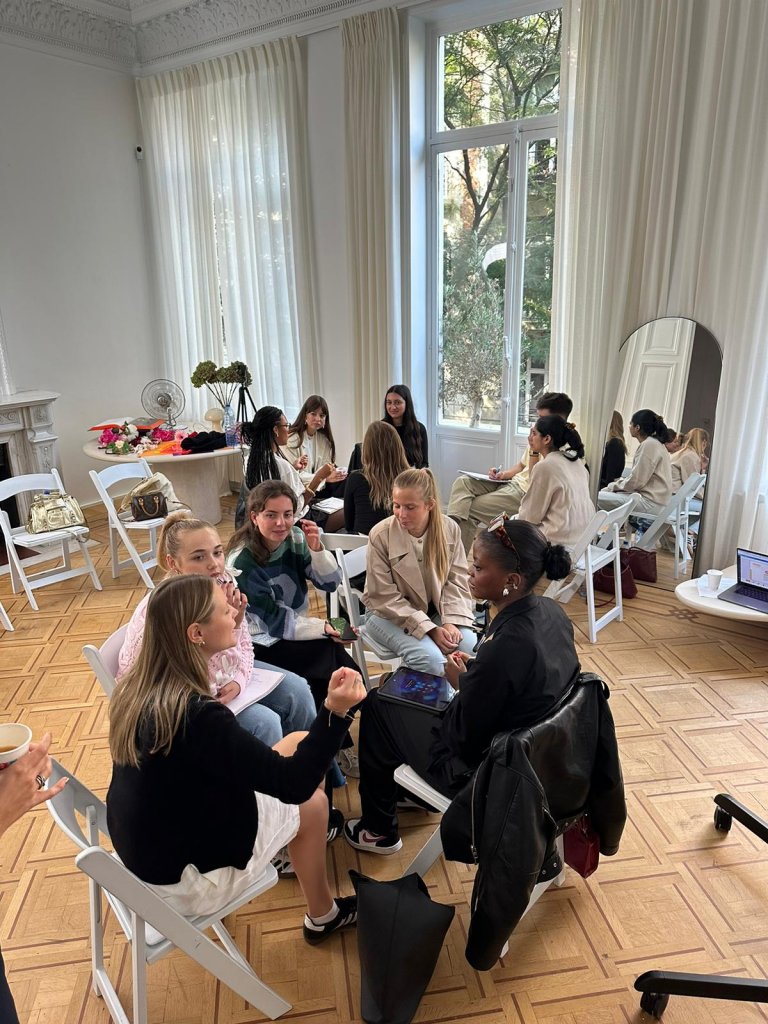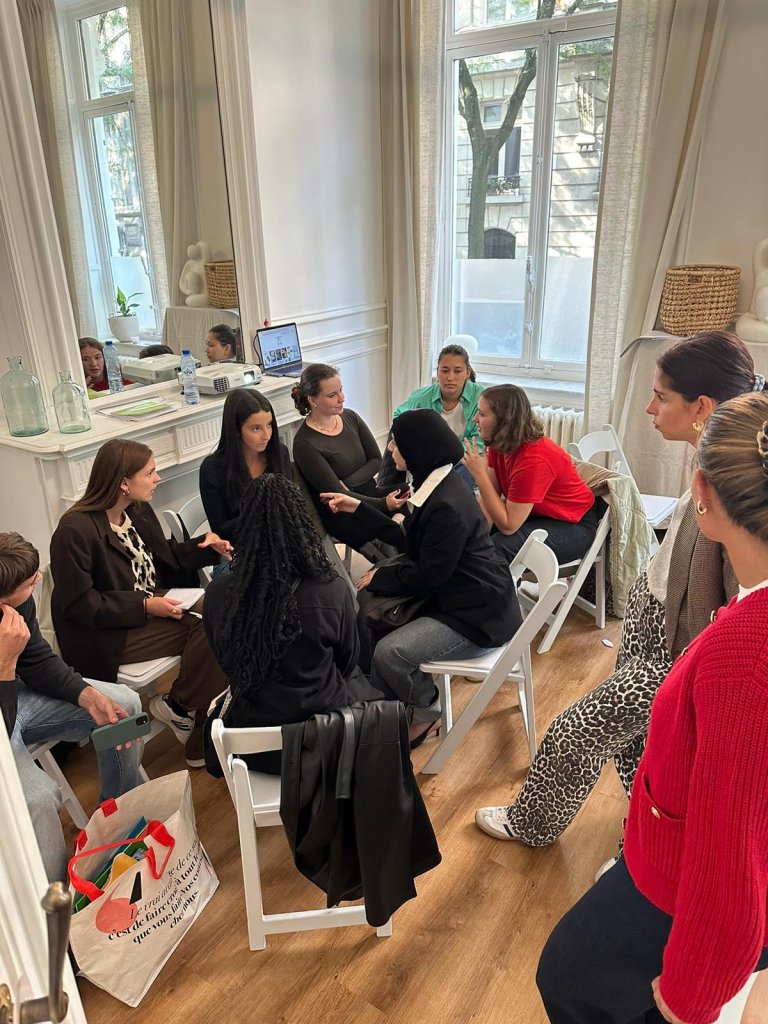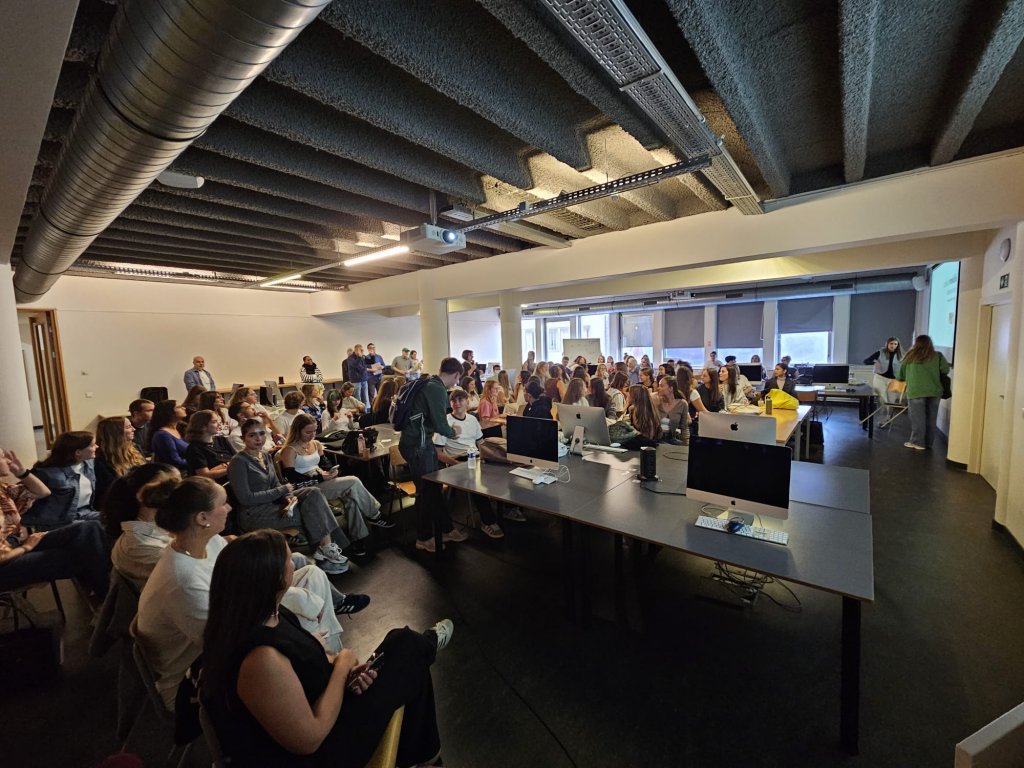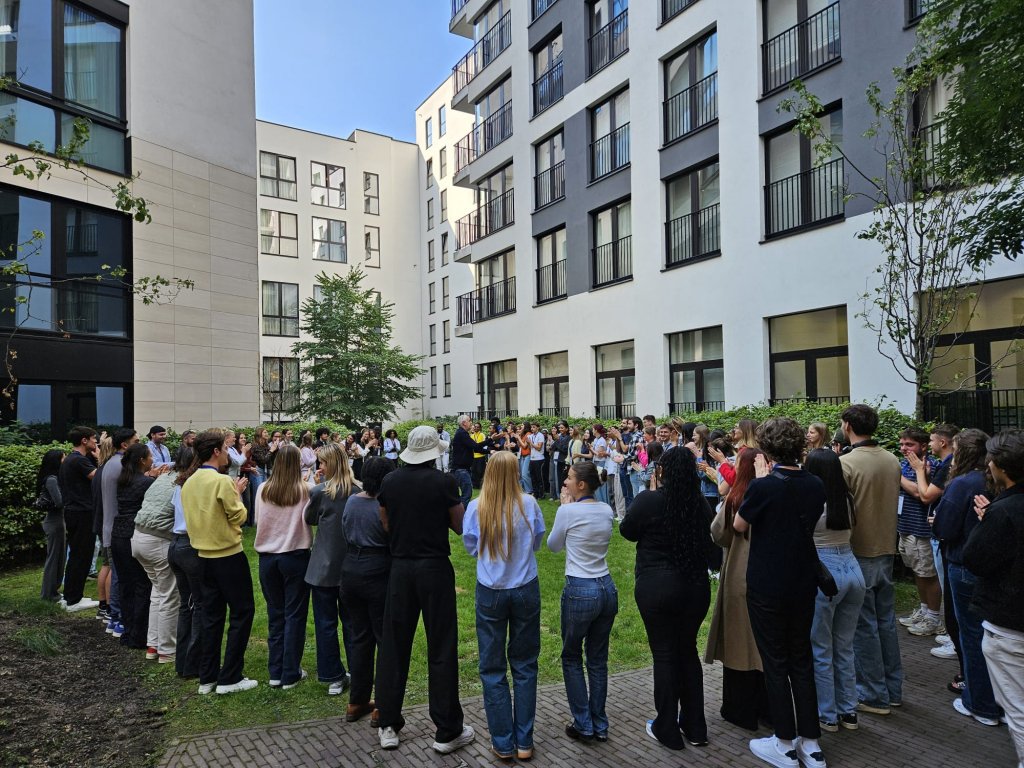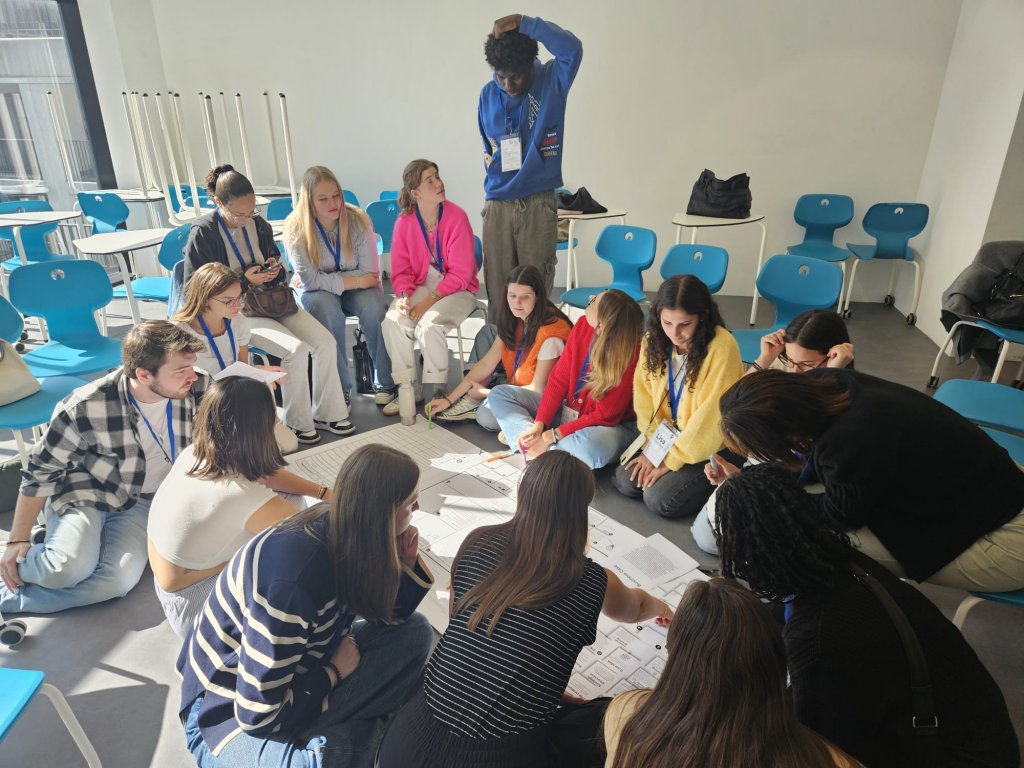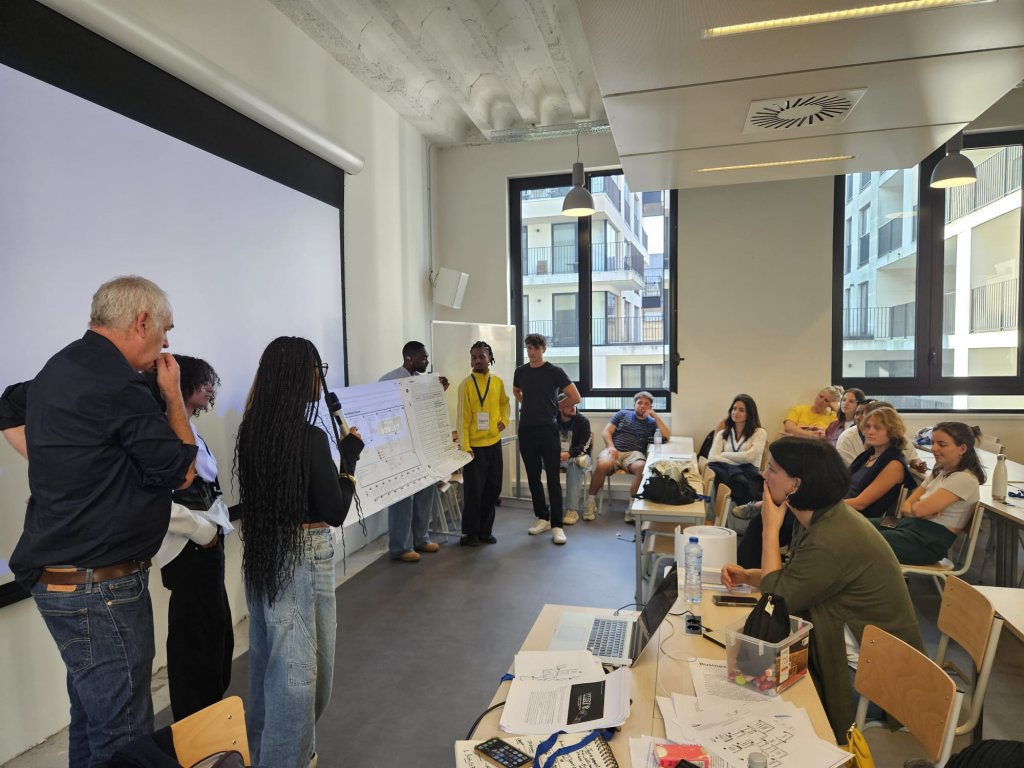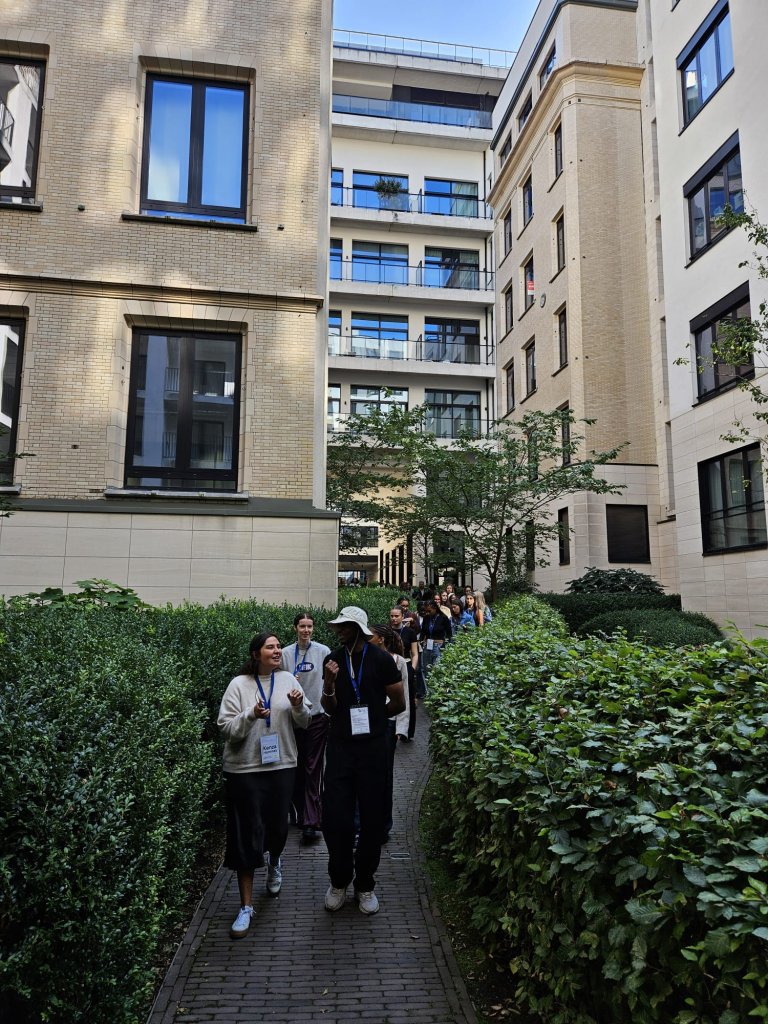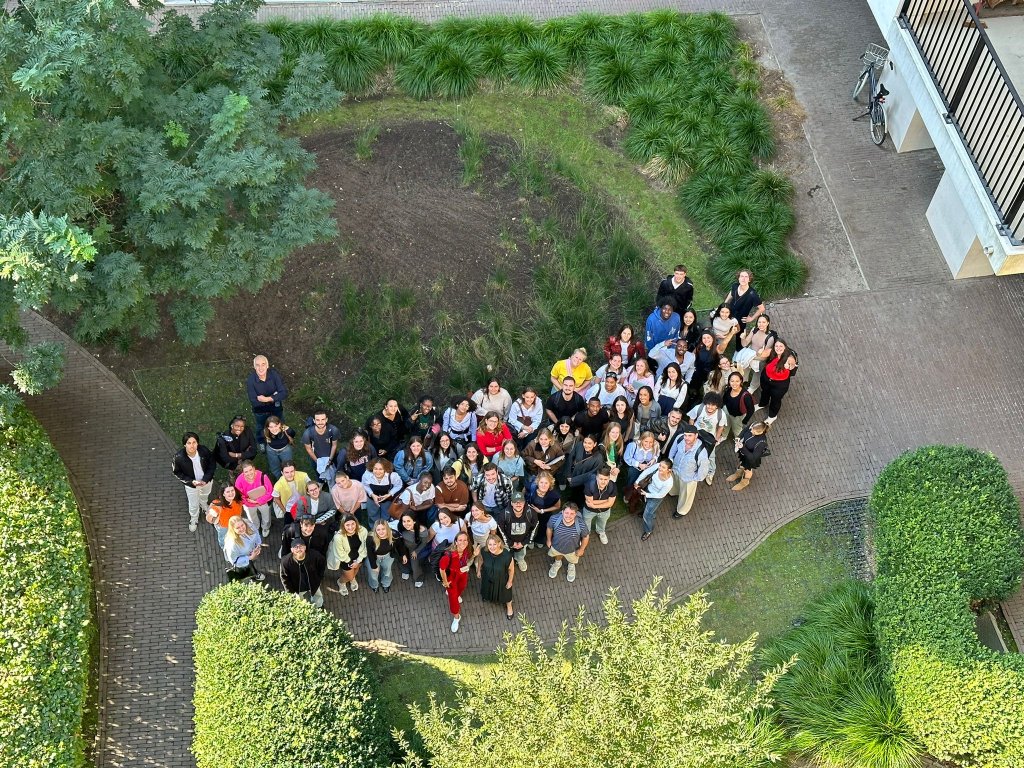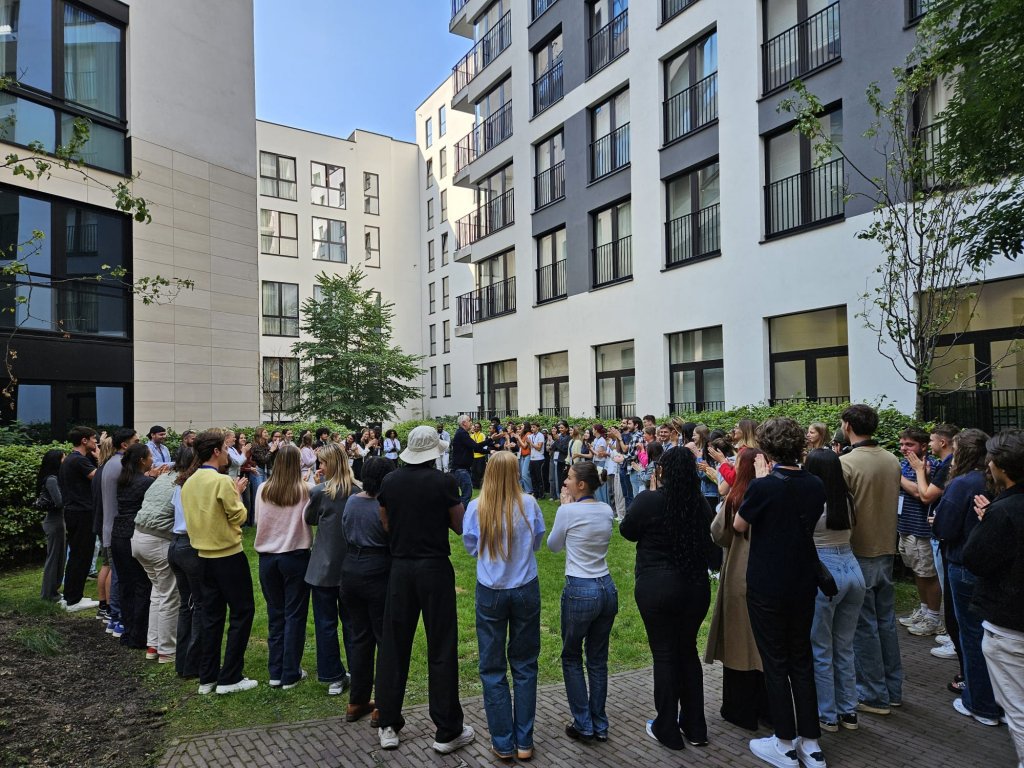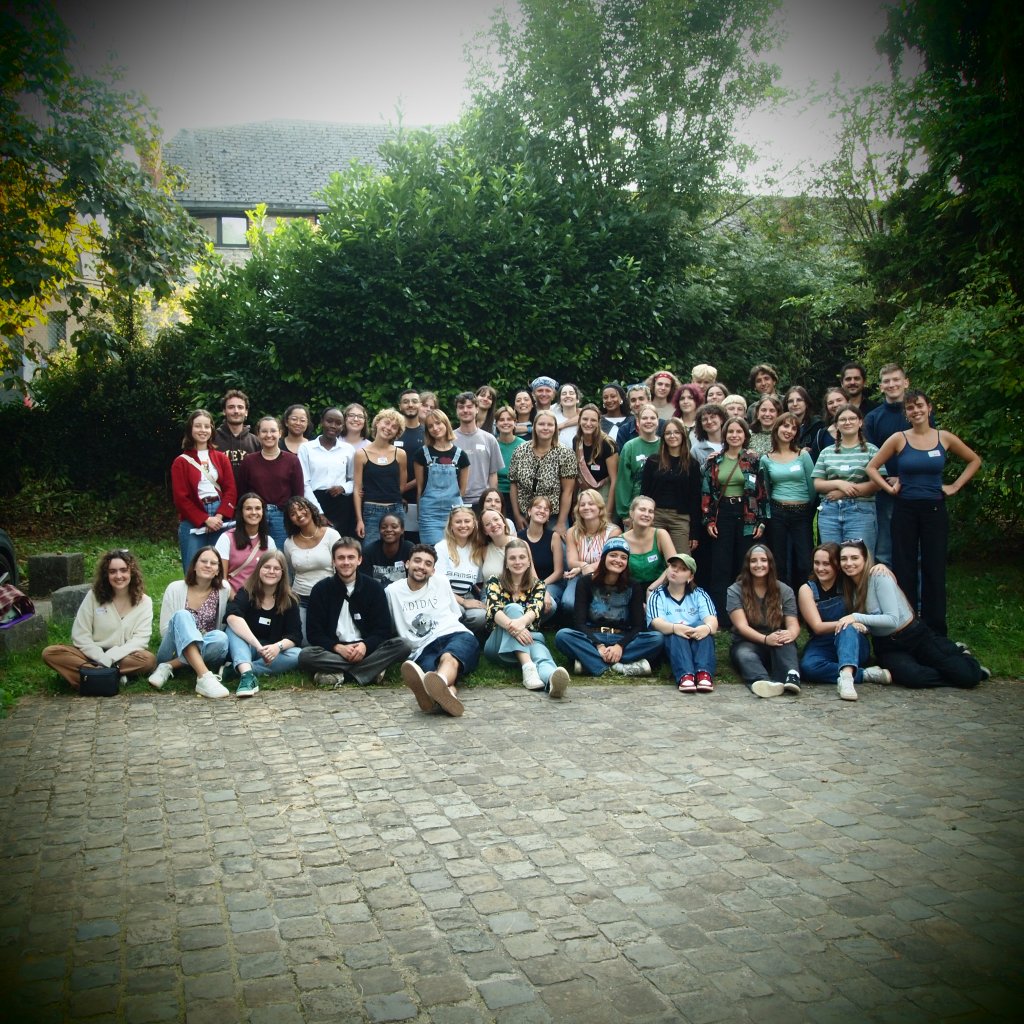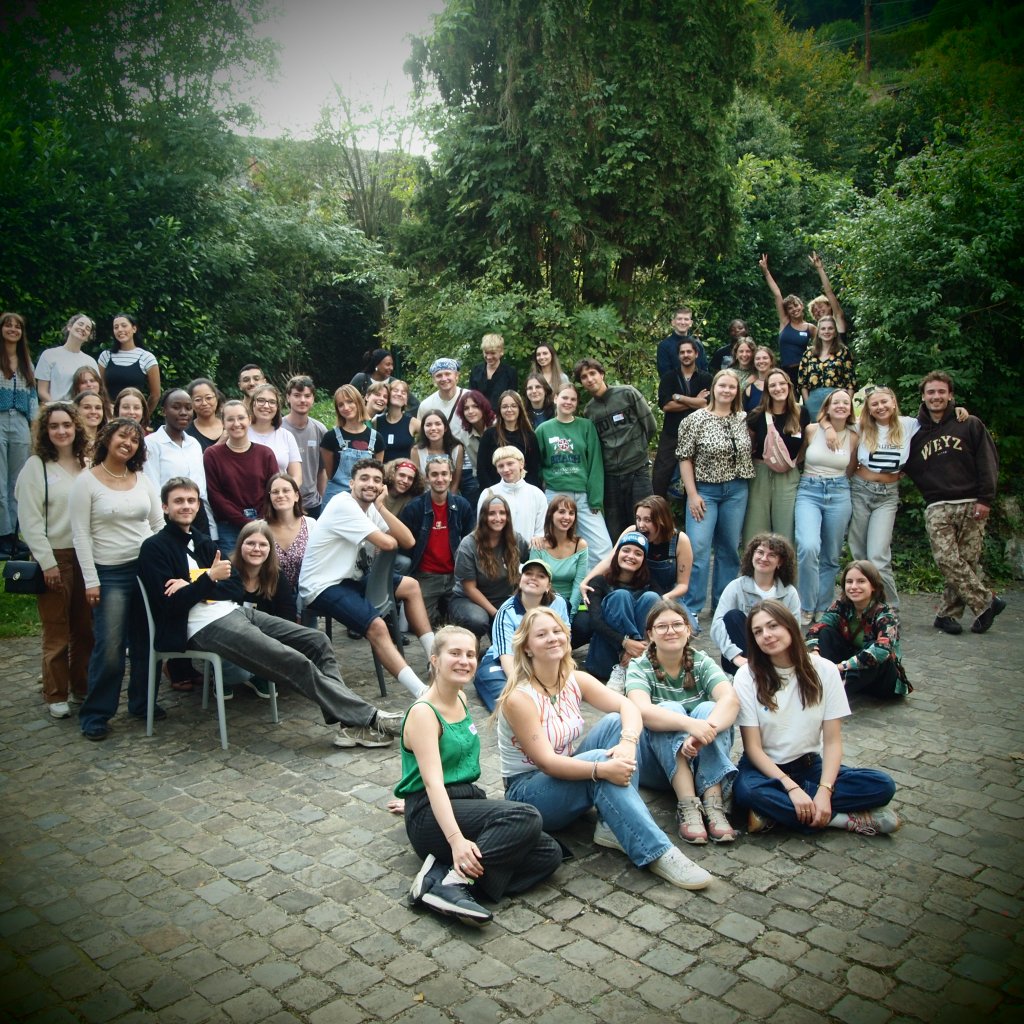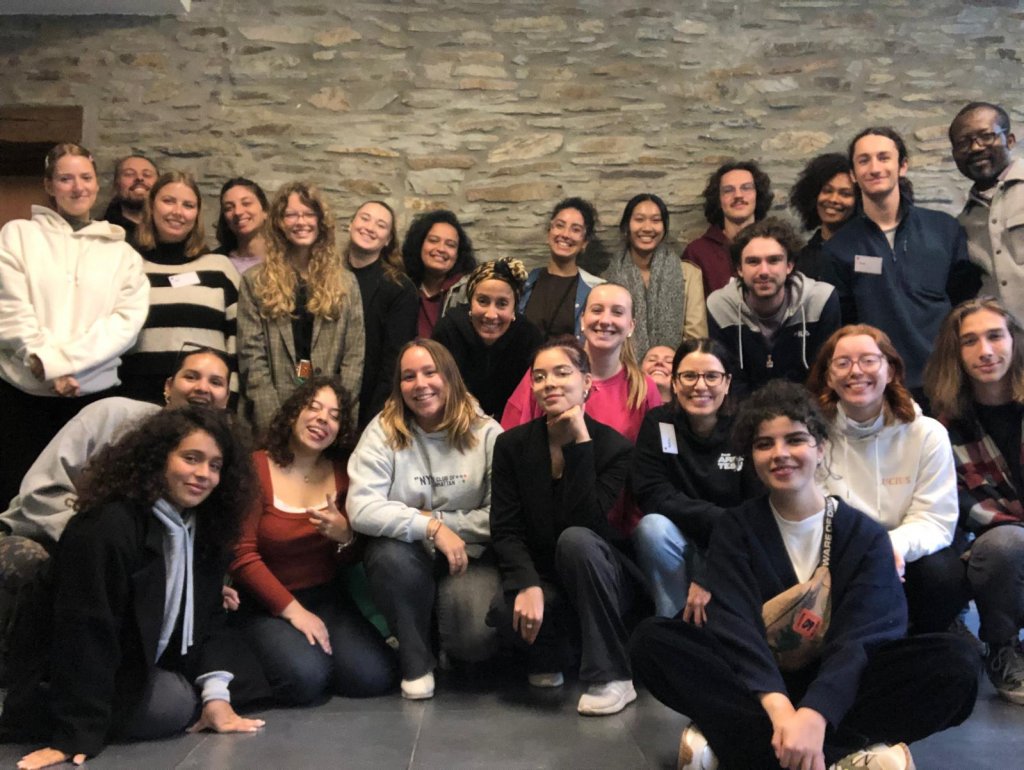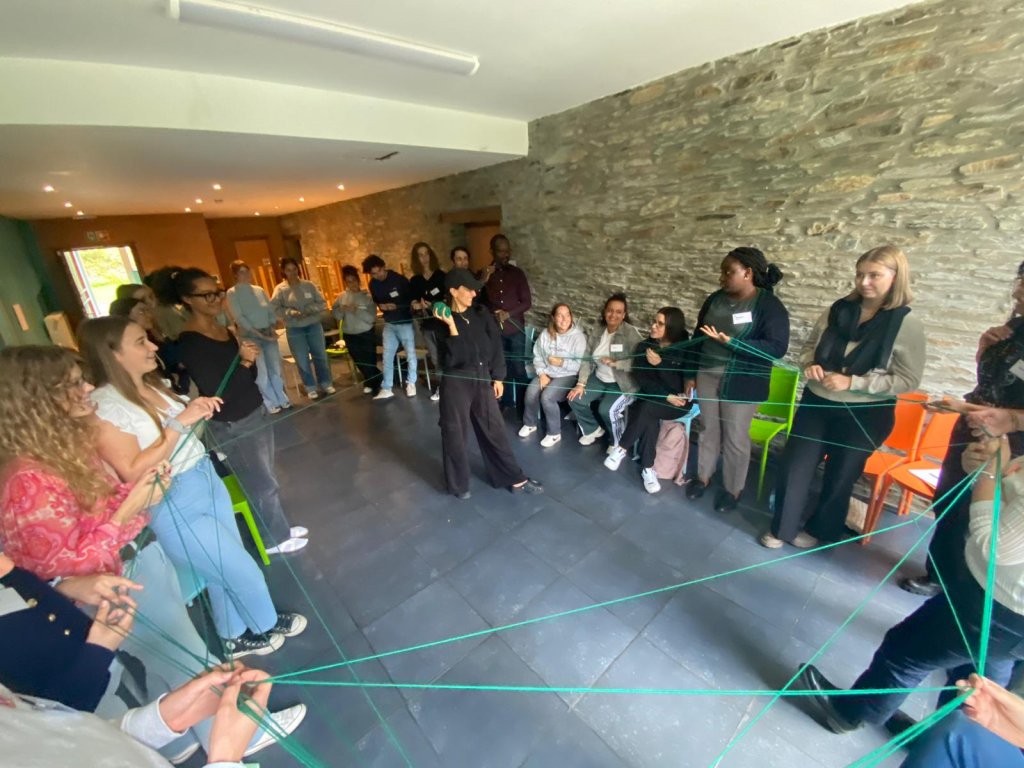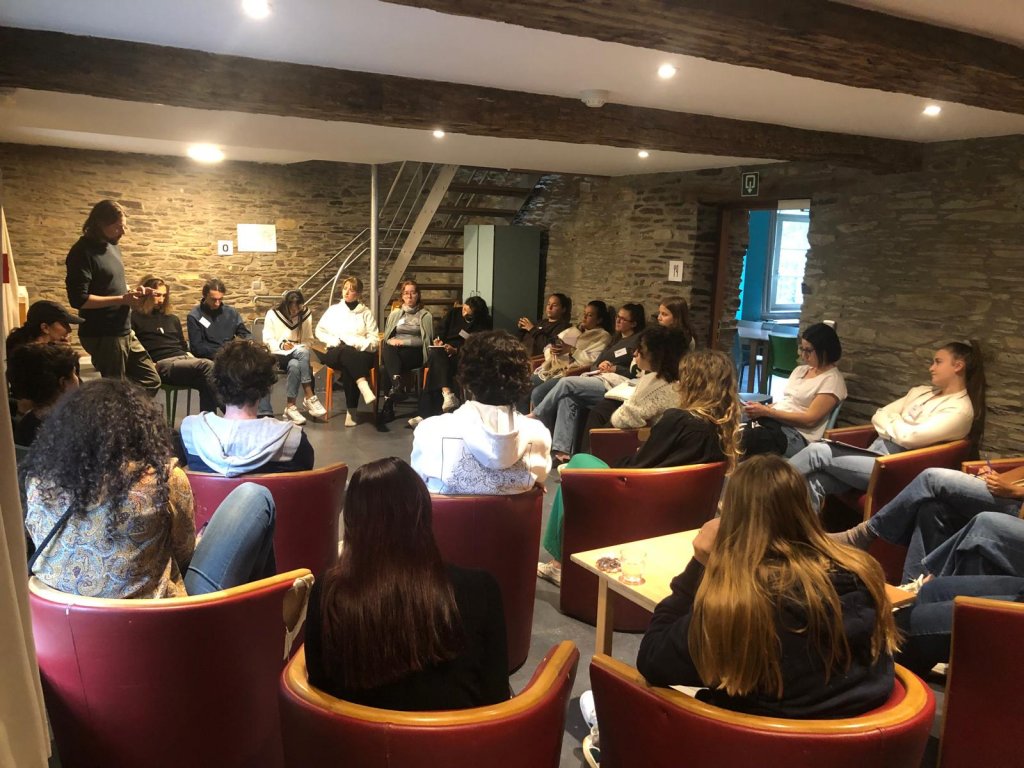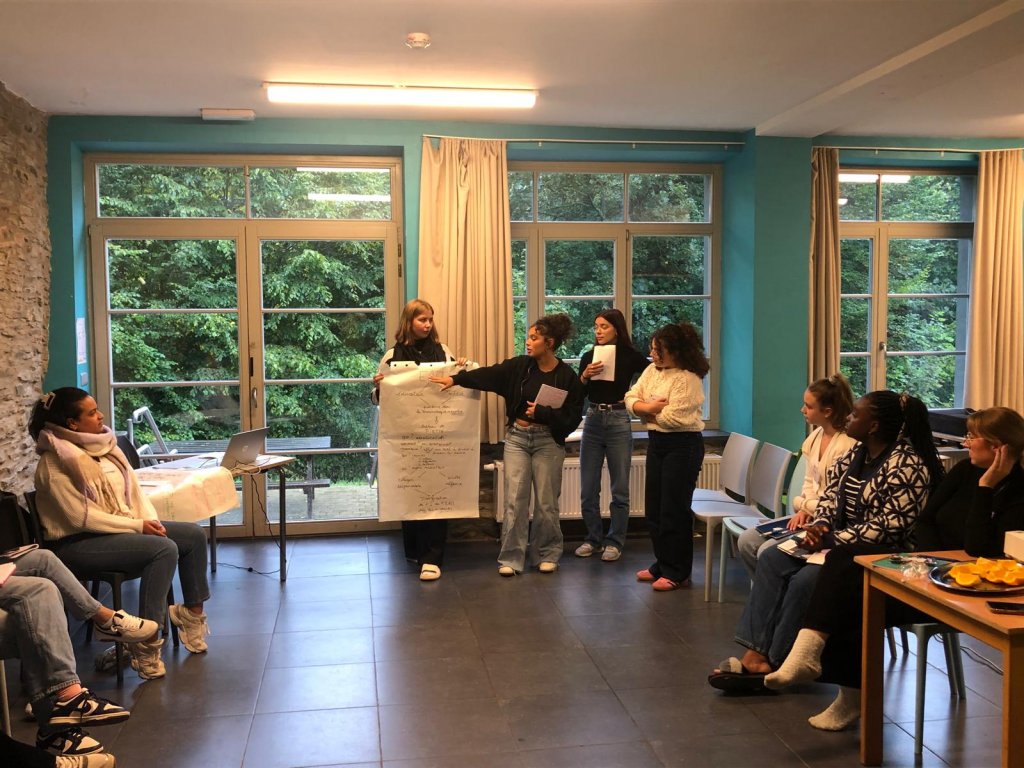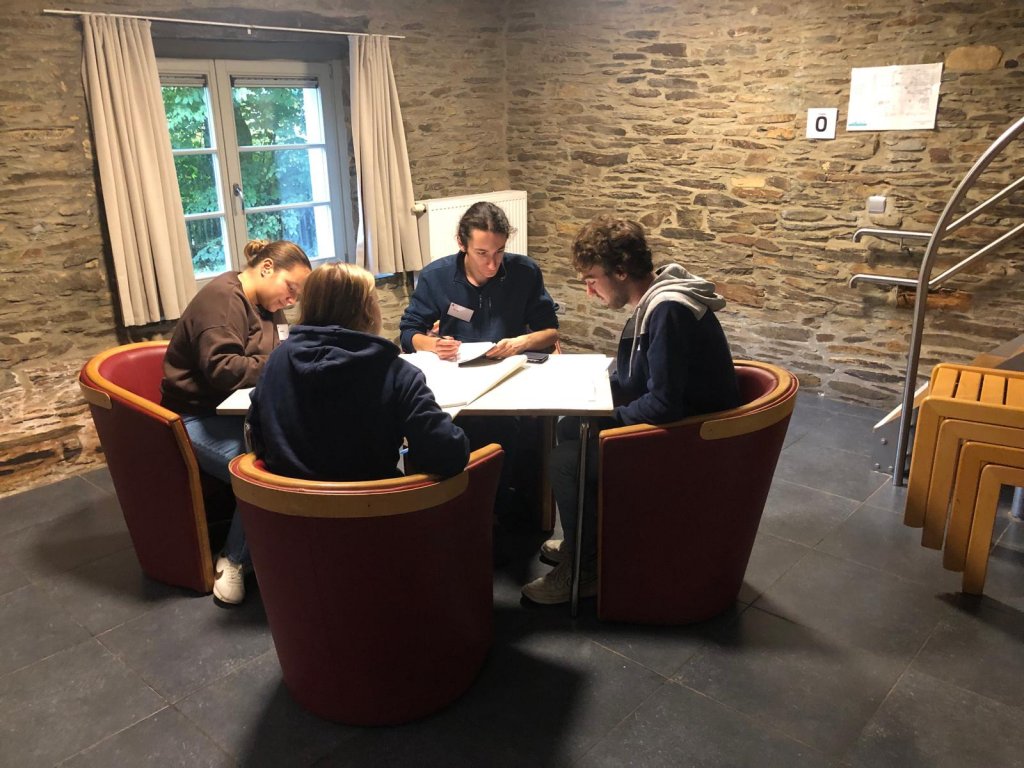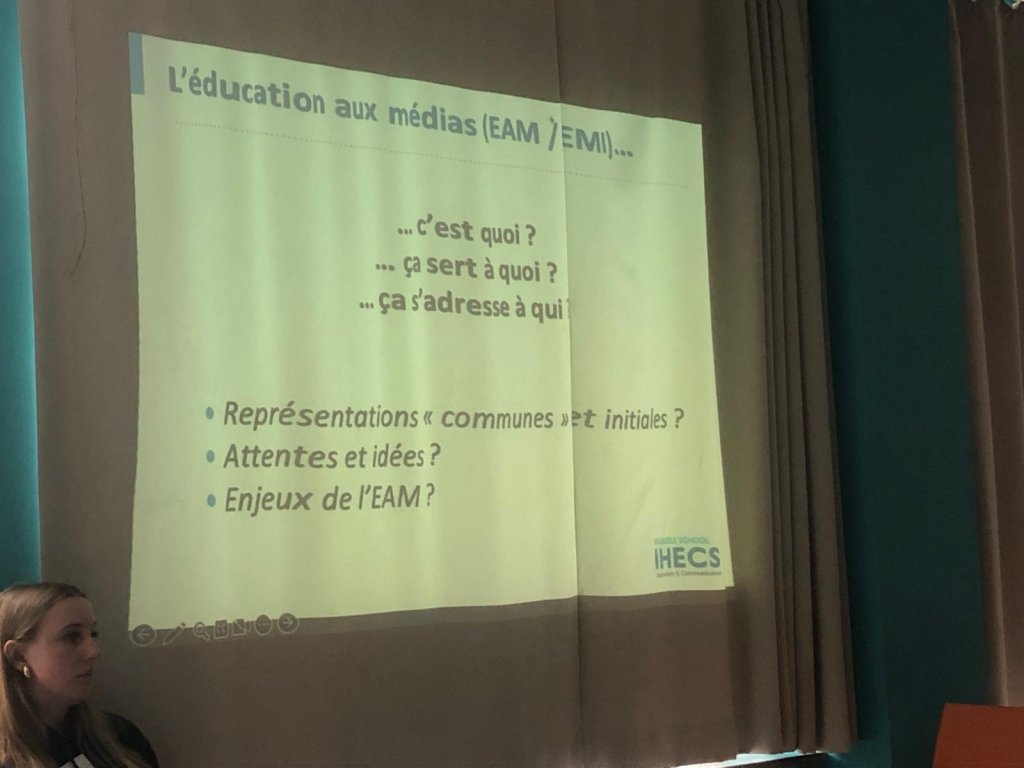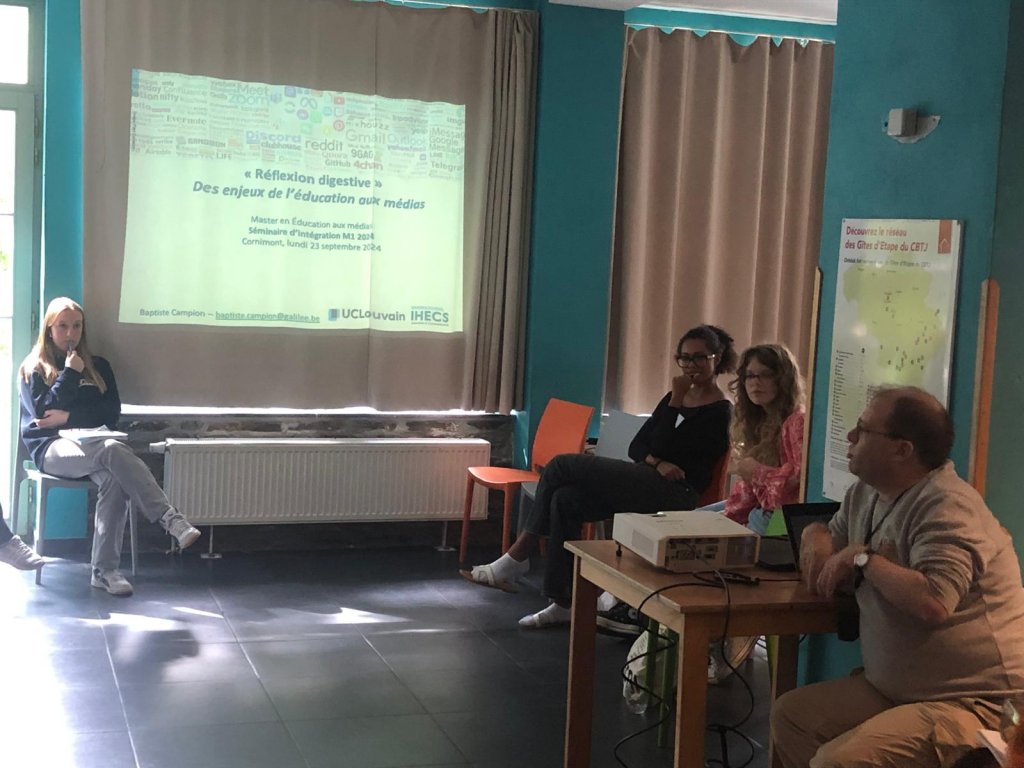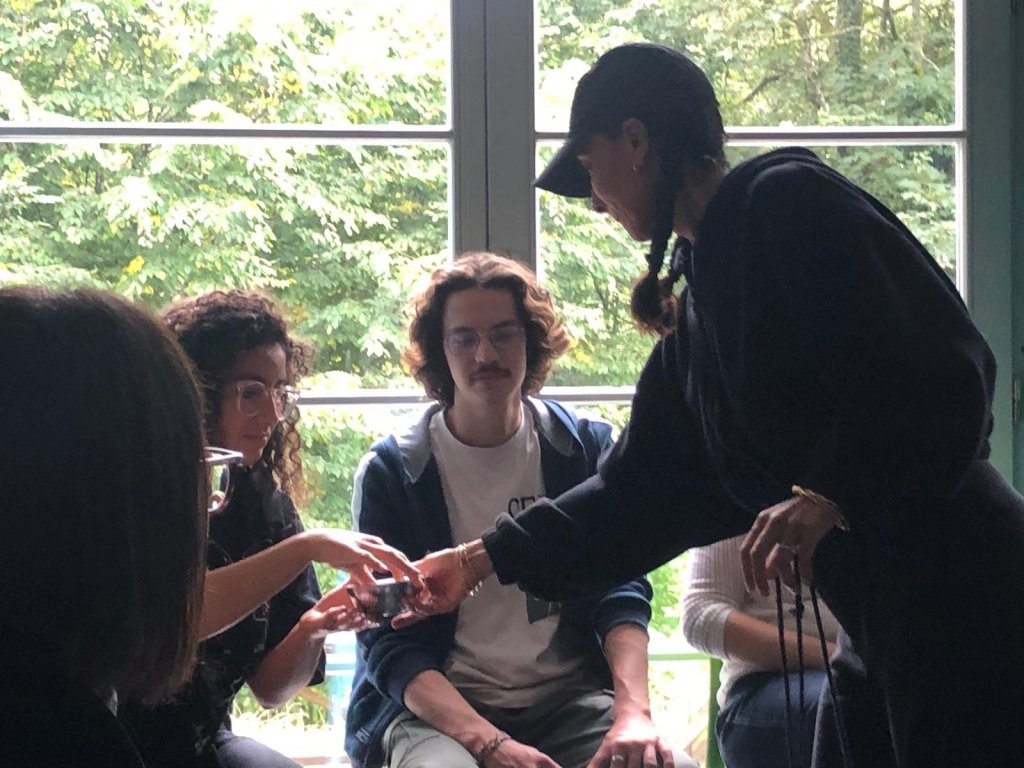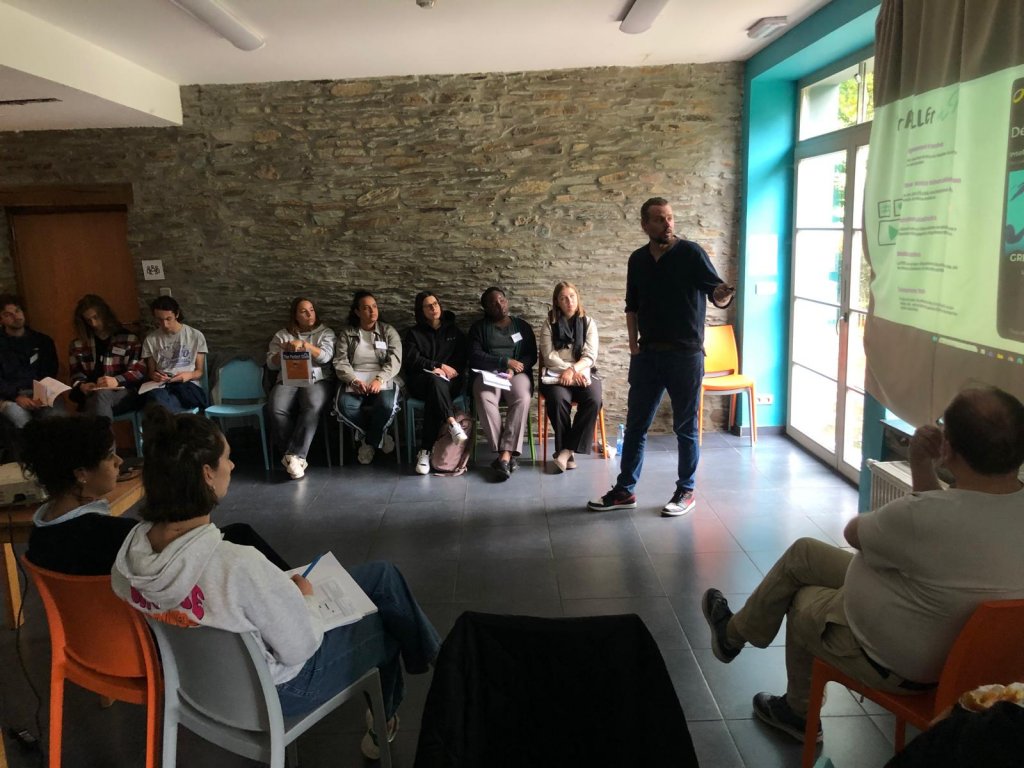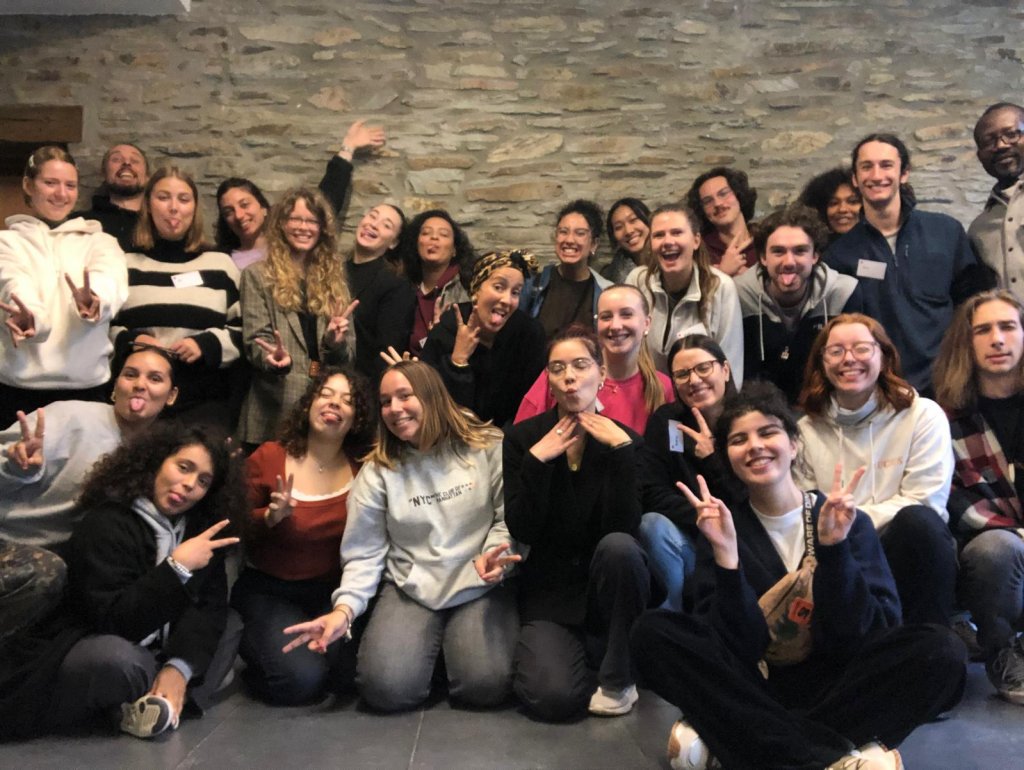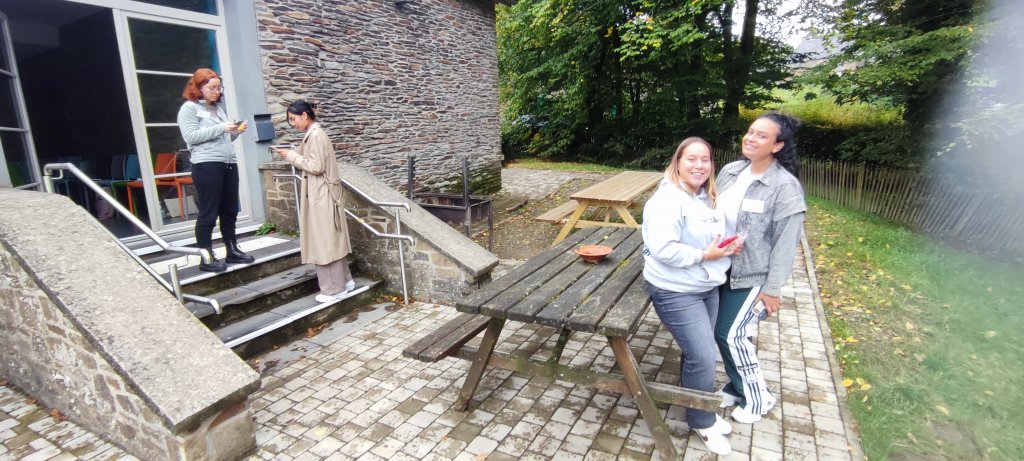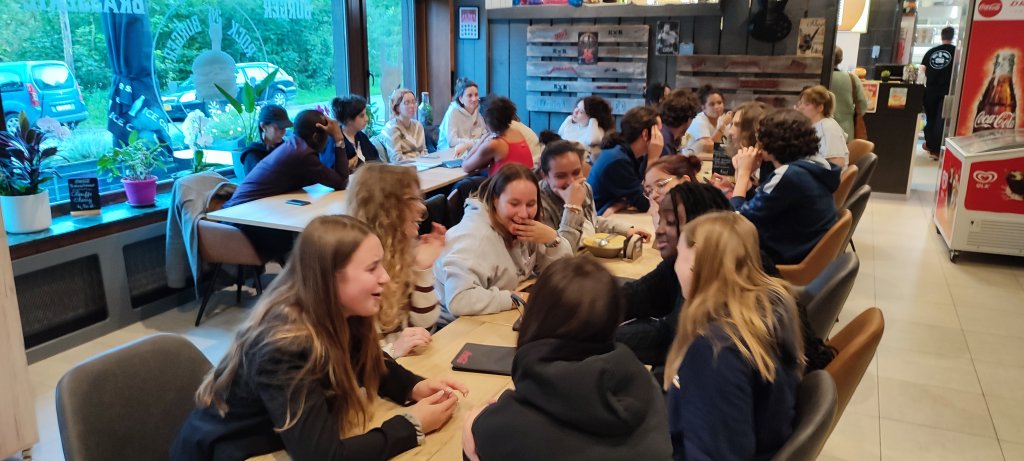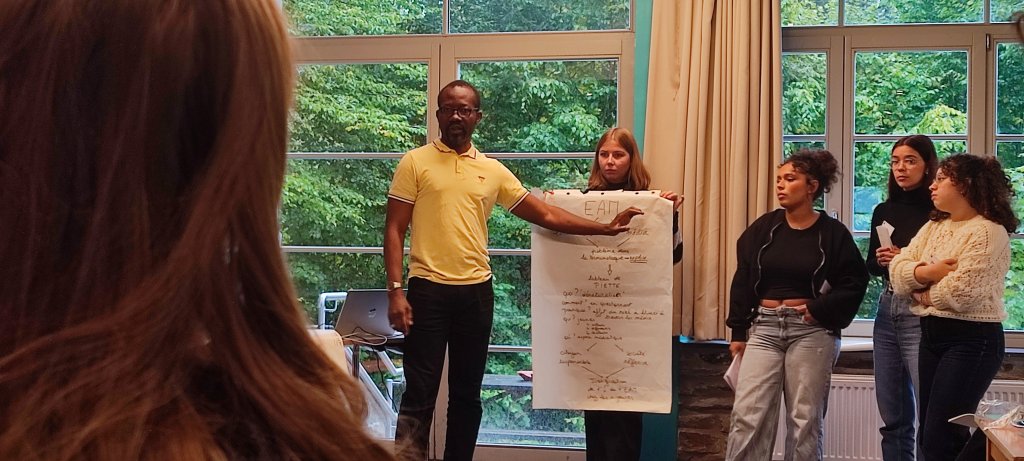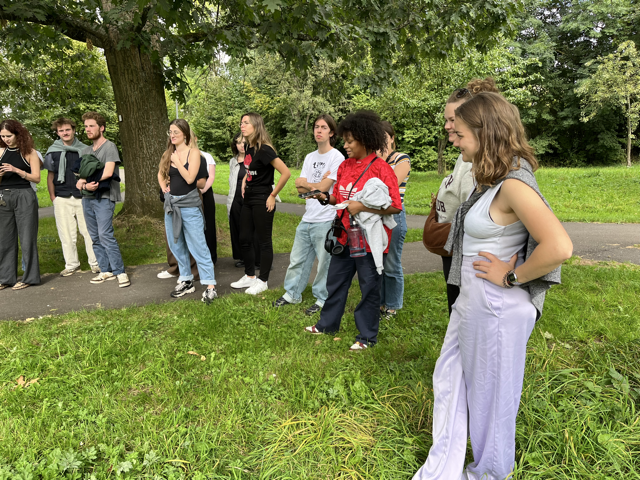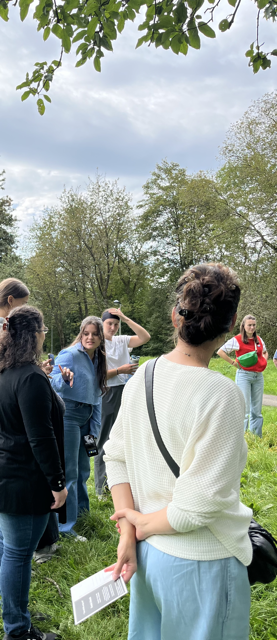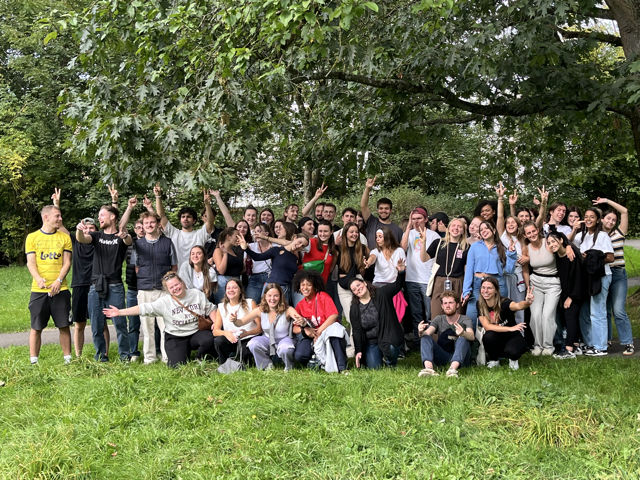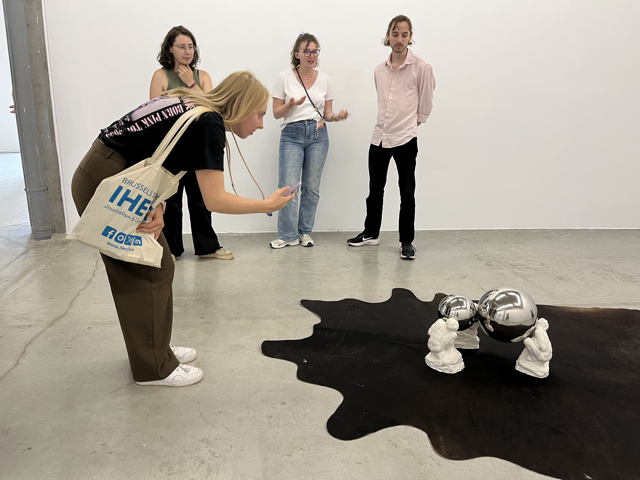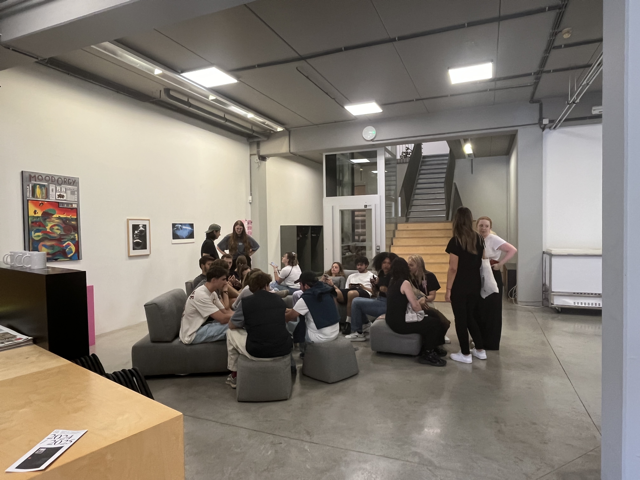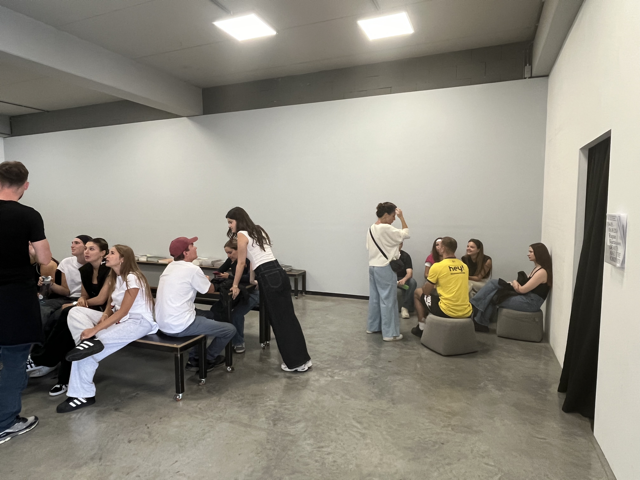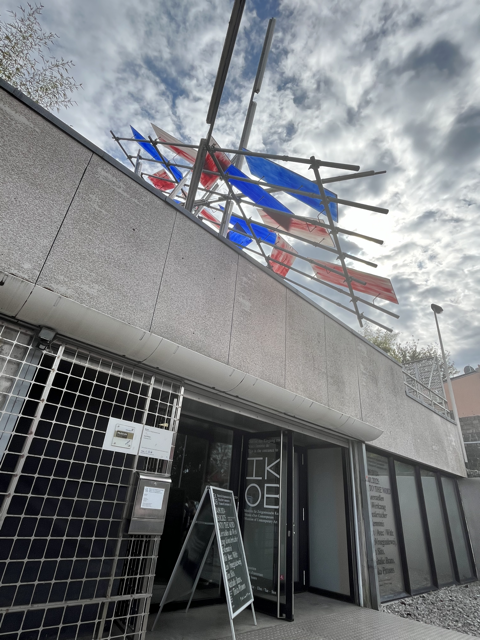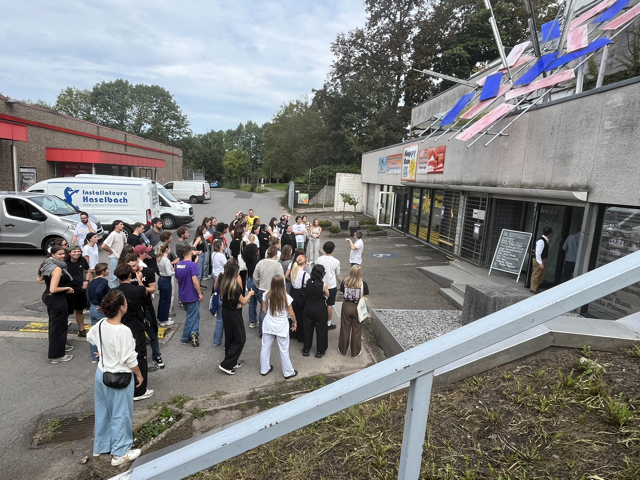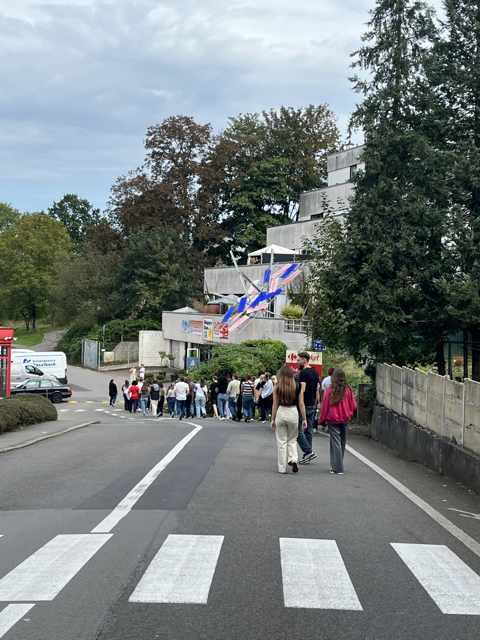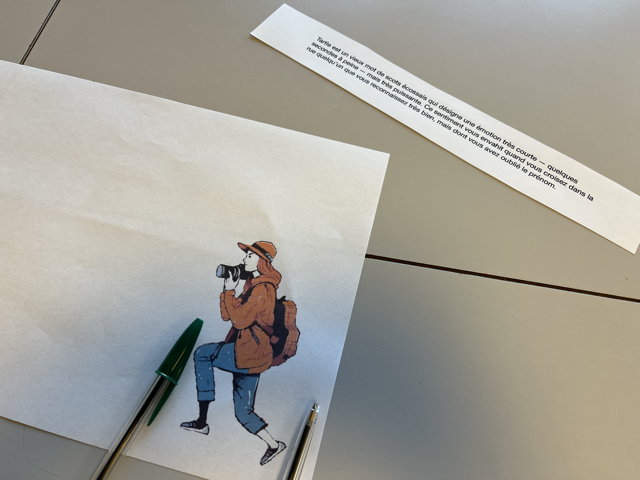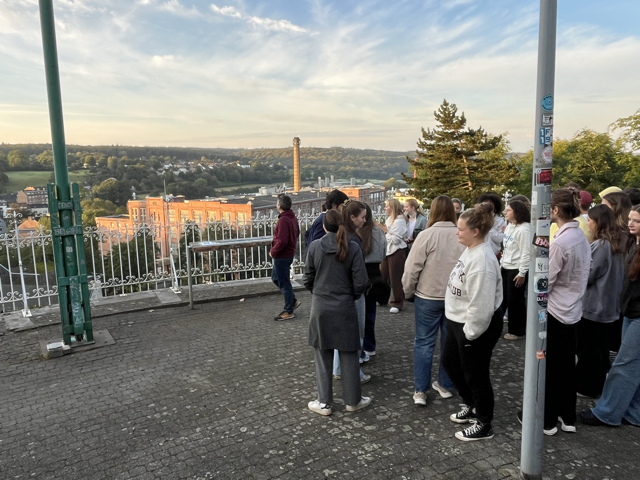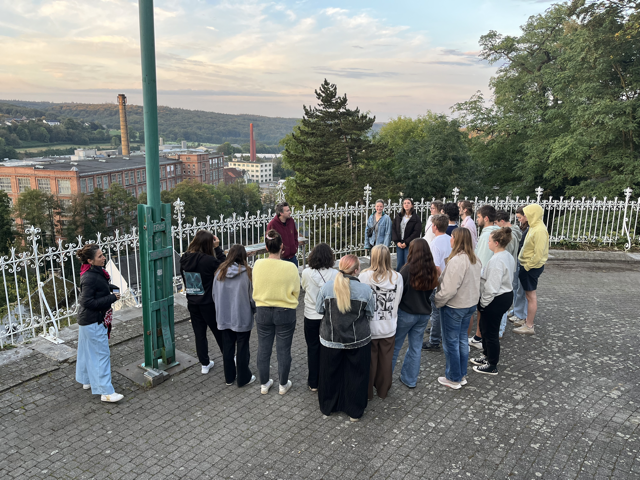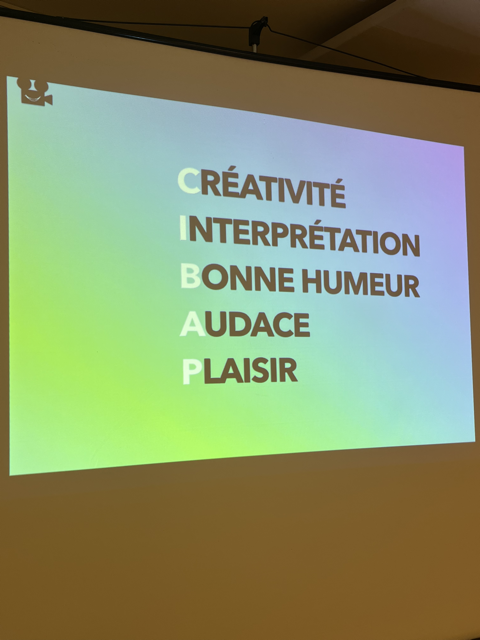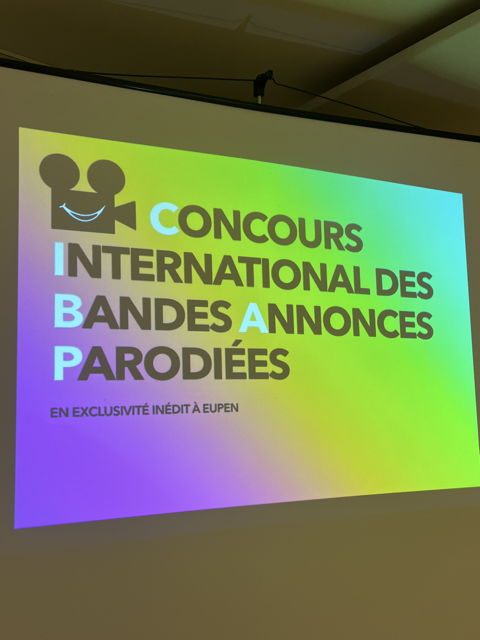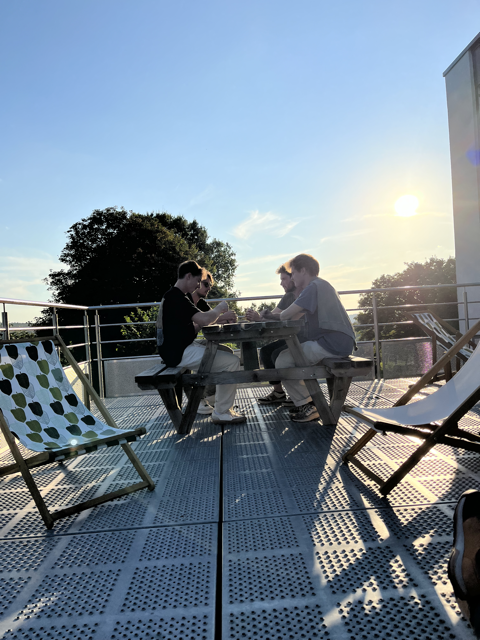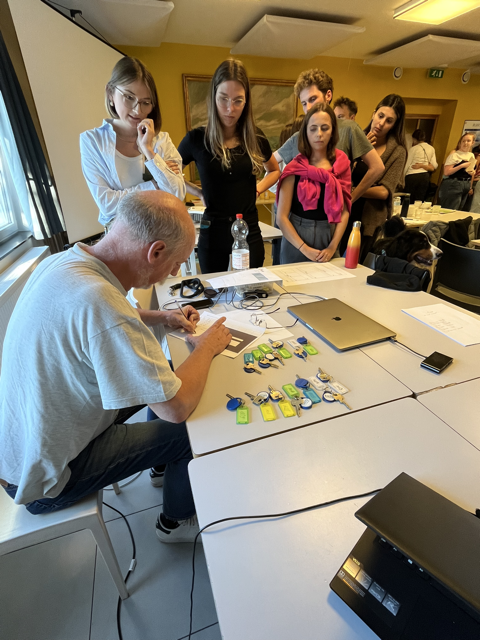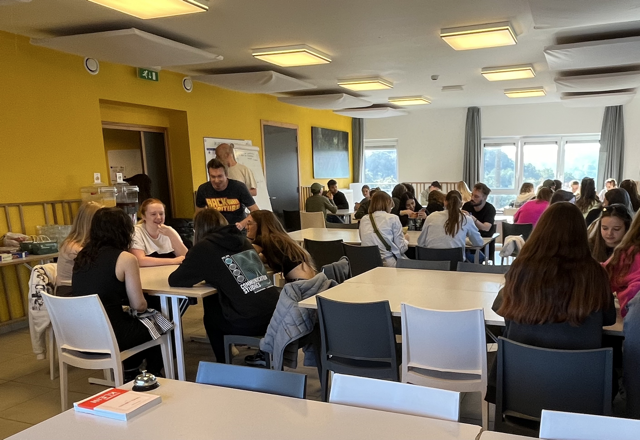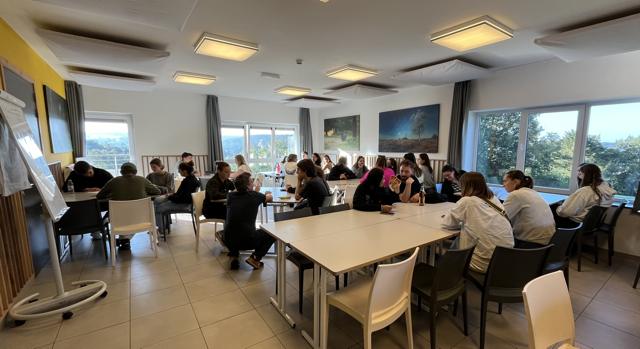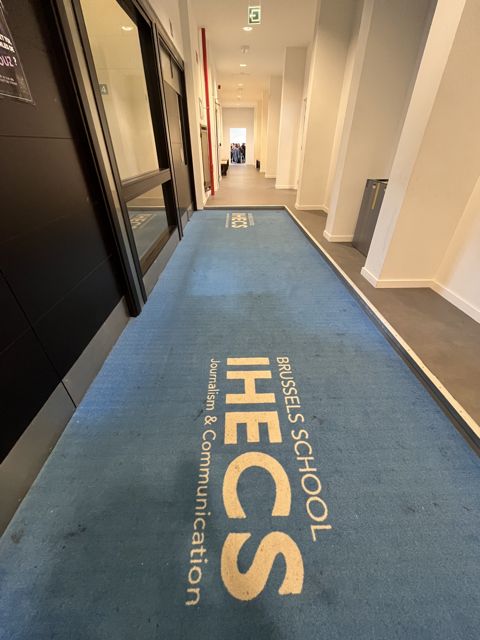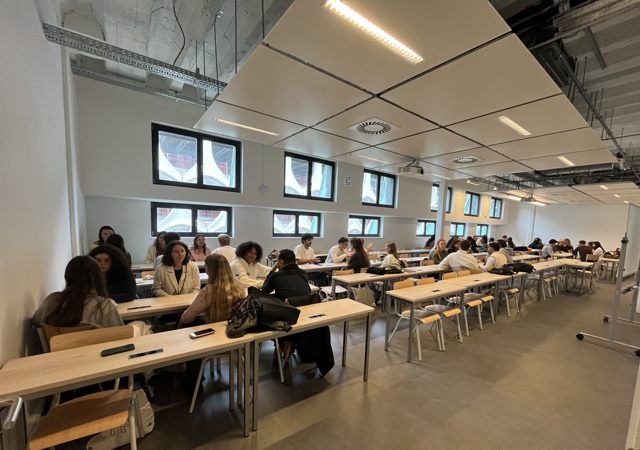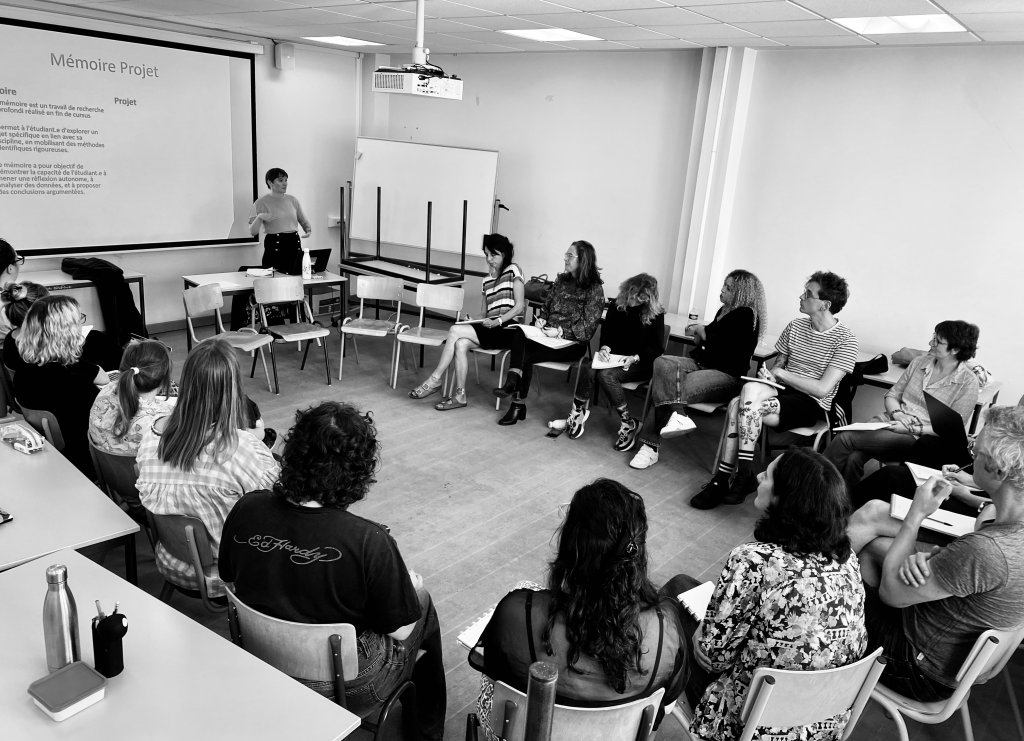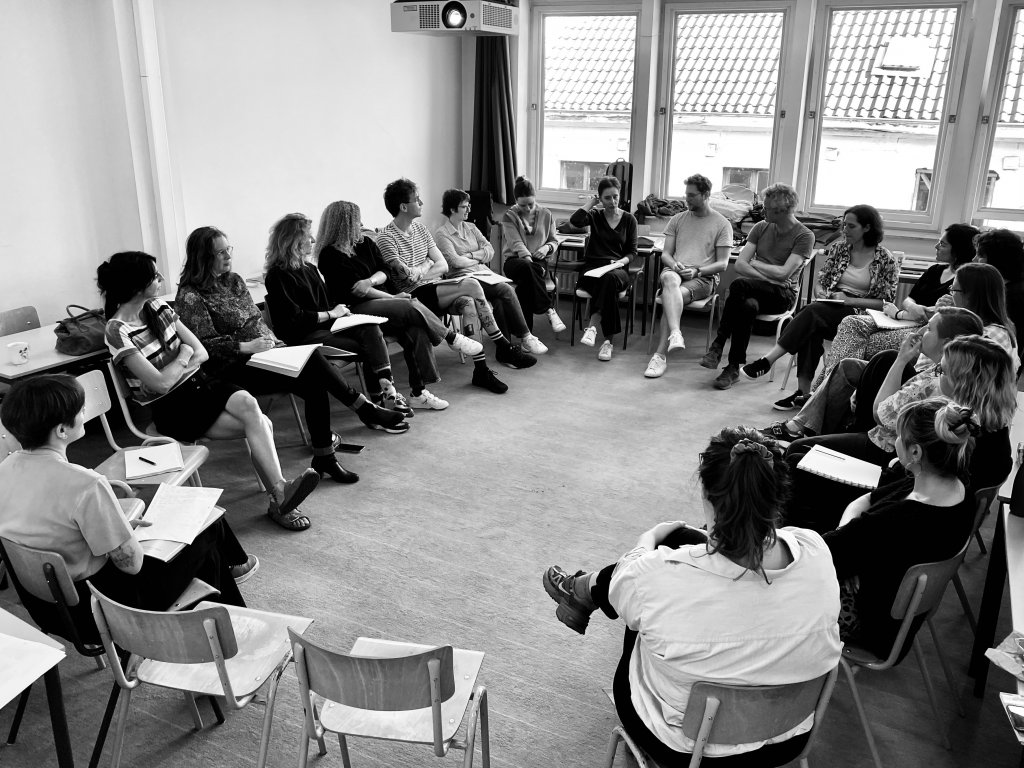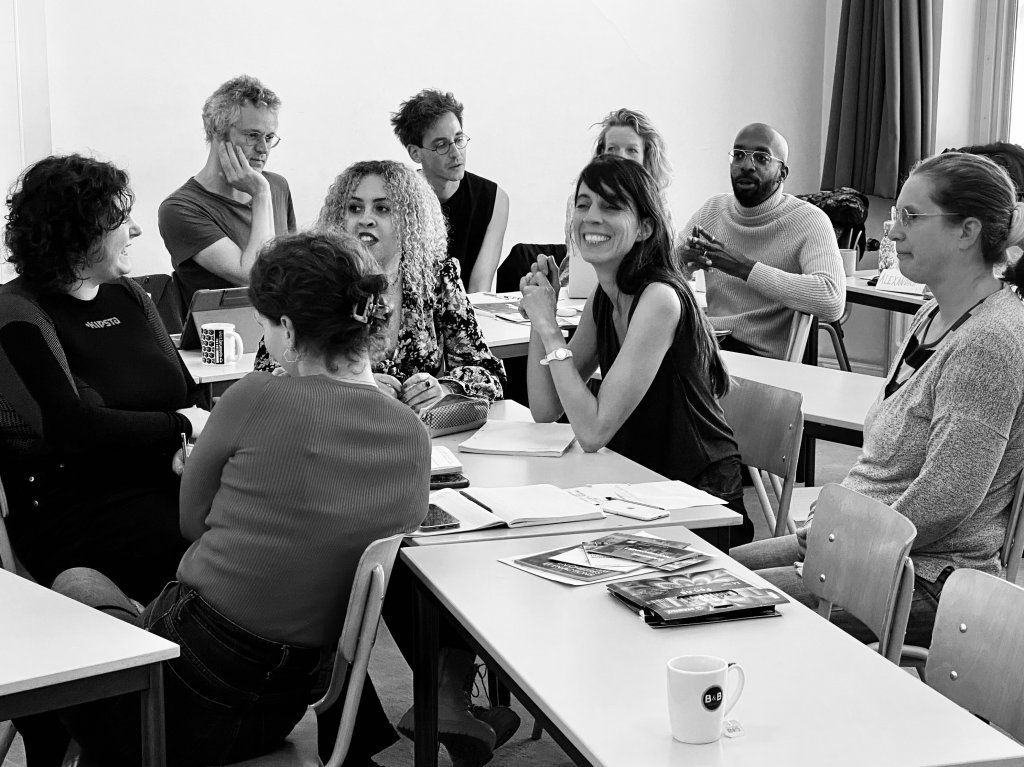A new academic year for our 10 Master’s programmes!
We invite you to preview these 10 academic year starts!
The Master’s 120 in Journalism
For this new academic year, the inaugural lecture of our Master's in Journalism was delivered by Christophe Berti, Editor-in-Chief of the newspaper Le Soir. Journalism practices continue to evolve in step with the development of the profession. In this context, the theme for the opening lecture for the 2024-2025 academic year was "The issues and challenges of the profession: Le Soir at the heart of political debate." This lecture was delivered to all Bac3, M1 and M2 students, as well as the Master’s 60 class, and represented an opportunity to provide a comprehensive examination of the issues and changes within the profession and to offer students a behind-the-scenes look at the strategy of a major media group that is making its mark on public debate. The Rossel group currently represents 8 million daily readers (Belgium and France), 3,500 employees, and 1,000 journalists. Le Soir has been a mainstay for 136 years, following Belgian news and the evolution of the media, despite the constraints specific to the socio-economic context that weigh on the profession.
This inaugural lecture allowed Christophe Berti to discuss with the students several topics covering major issues for the profession and to encourage them to defend a journalistic approach that respects professional fundamentals, is independent and free, and is concerned with truth and the public interest. These important topics will be developed in the various courses throughout this new academic year.
The Master’s 120 in Public Relations
The new academic year for the IHECS Public Relations programme kicked off with an inaugural lecture led by Dr. Cédric Passard, a lecturer at Sciences Po Lille. Speaking to an audience of approximately 200 Master 1 and 2 PR students and their instructors, he explored the political deployment of insults, a topic that provided a catalyst for reflection on the impact of words in communication strategies.
The department then presented the Master's in PR programme and the induction week, which is designed to immerse first-year Master's students in professional realities while fostering cohesion within the Master's programme. Over two days, nearly 100 students had the opportunity to explore the diverse professions within PR through an immersion in 26 organisations, including agencies specialising in PR and communications, private and public companies, and associations. As communications assistants, the students gained hands-on experience, foreshadowing the skills they will develop during their Master's programme.
The department would like to thank its partners for their welcome: Amnesty International Belgique Francophone, akkanto, BeInfluence, Brainstorming Communication & PR, Brum Smith, Brussels Airport Company, Carmeuse, Clinique Saint-Jean, DGA Group, ENGIE, Famous Relations, FINN, GOPA Com., hub.brussels, IKEA, Ketchum Brussels, Ligue Handisport Francophone, Nonante cinq, Ribbon Agency, Saper Vedere, Solvay, STIB, TBWA, and Whyte Corporate Affairs.
At the same time, 45 Master 1 PR students participated in an interactive workshop supervised by the Atelier Milky team. Focusing on digital communication and social media, they designed a complete digital campaign from strategy to influencer marketing.
The week concluded with an induction day, led by Fred Goffin and the PR department, focused on team building and teamwork. Through fun and interactive activities, students were able to foster relationships while learning to combine different talents and skills to meet PR challenges and develop group communication strategies.
Meanwhile, the Master 2 PR students have begun the second phase of their media thesis, supported by their media advisors and the department. After a debriefing with their sponsors (Bruxelles Formation, Bruxelles Mobilité, Entreprendre Bruxelles, Just EAT Takeaway, Fédération des Gîtes et Chambres d'hôtes de Wallonie, Fondation Roi Baudouin, Les Petits Riens, Neuhaus, Pierre Fabre, RTL, Simone Stories, and Walibi) on the strategic recommendations they presented in June, the 12 student teams are beginning production of their media materials, which they will present to a jury next January.
The Master’s 120 in Cultural and Social Communication (MaCSC)
The IGSe. (Idea Generation Seminar) was a wonderful success. Four days away from IHECS allowed us to delve into the core of the MaCSC department, in particular through conferences, networking workshops, and shared reflections on themes such as social justice and access to culture. This seminar allowed incoming Master 1 students to meet, explore continuing education topics, and form their media dissertation groups.
We were also delighted to meet the Master 2 students, who have been over the summer and are passionately and intelligently engaged in the development of their media dissertations. We had the opportunity to discuss their involvement in the new Master's programme orientations (the cultural and artistic sector and the social-profit sector) during departmental drinks at Loft 58. They are indeed the first to benefit from this new course schedule. The new teachers in the department (Leila El-Mahi, Alexandra Lambert, and Annick Thönnissen) were able to assess the MaCSC and familiarise themselves with their groups.
The Master’s 120 in Advertising
The first few weeks as a first-year Master's student in Advertising and Commercial Communication are often filled with discoveries, new encounters, and academic challenges. To help students familiarise themselves with their new community and reflect on the future of their careers, the department organised two induction days. These two days were designed to foster networking and stimulate creativity.
The first day took place at Air, a well-known advertising agency dedicated to creating a positive impact for society. We would like to thank Pauline Heraly, CEO of Air – Partner of McCann, for hosting us.
A series of games and activities were organised specifically to break the ice and reinforce bonds between students.
These games fostered communication, collaboration, and team building. Students became acquainted with one another and learned to work together, creating a friendly atmosphere conducive to learning and collaboration.
The second day of induction began with an explanation of the various options offered within the Master's programme, as well as an introductory session to deconstruct the myths of creation. Thierry Brunfaut, Executive Creative Director at Base Design, challenged the concept of creation so that students could understand that creativity can be developed, learned, and transformed, and is not simply "innate." As part of this, the students participated in a creative brainstorming exercise, the aim of which was to showcase their creative potential.
The afternoon was also dedicated to getting to know each other better through speed dating. Since forming working groups is an important step in the curriculum, the Advertising department places particular emphasis on exchange. This will subsequently allow for the creation of more balanced and stable groups.
Ultimately, these experiences not only helped the students feel more inter-connected, but also strengthened their commitment to their future careers in advertising by encouraging them to be more conscious actors.
The Master’s 120 in Media Literacy
In the enchanting setting of Cornimont (municipality of Bièvre), the first-year Master's students in Media Literacy launched their year with a three-day induction seminar from 23rd to 25th September, 2024. Acting as a springboard before diving into the two years of training, this intense immersion allowed participants from diverse backgrounds – communication, journalism, multimedia – to grasp the master's programme's objectives and discover the numerous professional opportunities it offers.
The teaching team, comprising Emmanuel Wathelet, Nadia Benkassem, Baptiste Campion, and Pudens Malibabo, respectively the department's president, administrative assistant, and academic managers, established a friendly, welcoming atmosphere, essential for fostering strong interpersonal relationships throughout the programme.
Three key aspects were highlighted in this seminar:
1. A clear vision of the programme
From the outset, Emmanuel Wathelet guided the students through the media literacy landscape in French-speaking Belgium. Participants learned about key institutions such as the Higher Council for Media Education (CSEM), the internal dynamics of IHECS, and the specific career opportunities offered by the master's programme.
An icebreaker session, moderated by Nadia Benkassem, then allowed for initial connections to be made in a relaxed atmosphere conducive to discussion.
2. Enriching lectures and debates
Baptiste Campion gave an insightful lecture on current issues in media literacy, addressing fundamental questions such as: What is media education? What is its purpose, and who is it for?
Pudens Malibabo continued with a survey session based on the book "L’éducation aux médias à l’ère du numérique. Entre fondation et renouvellement" ("Media Literacy in the Digital Age: Between Foundation and Renewal") by Normand Landry and Anne-Sophie Letellier (2016). Students formed small groups to explore key themes related to media literacy, such as gender, privacy, democracy, and artificial intelligence, before sharing their reflections with the entire group.
3. Specific projects for practice
The immersion continued with practical case studies involving two projects: a podcast and a digital platform for 8- to 12-year-olds. Emmanuel Wathelet moderated the podcast session, focusing on the creation stages, content, and analysis of the format's reception. To conclude the seminar, Pudens Malibabo presented a recent study on the uses of a Quebec digital platform by children aged 8 to 12, illustrating how these young users develop their critical thinking skills through this digital medium.
These three days were also characterised by a fun atmosphere, conducive to strengthening team spirit. Discussions fuelled by students' questions allowed for in-depth exploration of certain topics, bolstering their commitment to this academic adventure.
Back at IHECS, the Media Literacy teaching team organised a drinks reception for the Master 2 students who had completed their immersion experience the previous year. This meeting provided an opportunity for the team to wish their students a successful academic year and encourage them to finish their final year on a high note.
The Master’s 120 in Event Management
This year, we are delighted to welcome a new cohort of around fifty students to the Master's 1 programme. The students hail from a variety of backgrounds, and many of them did not complete their bachelor's degree at IHECS. So, to help them find their way, we decided this year to allocate mentors to them. And who better than our dear Master's 2 students to best fulfil this role?
Rested from the summer and in great shape, our Master’s 2 students have had a great start to the new school year. On the agenda was the launch of their end-of-studies event-based Memory Project. To achieve this, the Department organised an intensive Seminar Week for them. To kick things off, a presentation of the briefings by our 3 partners this year: Bas les Masques, Domaine de Graux, and Enerlead. This was followed by a strategic analysis of the briefings under the supervision of Claire Hennes, Anne-Catherine Lahaye, and Patrick Vandoorne. The group training was led masterfully by Kevin Van Nuffel, and the Seminar Week concluded with a sunny weekend of creativity in Eupen orchestrated by Jérôme Ramacker.
Twelve hours of intensive workshops designed to tap into the imagination, spark ideas, challenge them, and play with words and images. The challenge: to leave with an event concept. Our nine student groups took on the challenge, and they cheerfully resisted the urge to stay with traditional event formats!
Check back in January 2024 to explore them!
The Master’s 60 in Journalism
"The Master's 60 in Journalism courses resumed on Monday, 16th September. After a welcome address from department president Nordine Nabili, the fifteen students present learned the basics of the methodological approach to journalistic production.
The media ethics/rights courses began in September, while the media courses began in October. This October will also feature a documentary on journalistic objectivity at the Festival des Libertés and a visit to the exhibition by Johanna de Tessières, a photography professor in the Master's programme.
The Master’s 60 in Public Relations
For the second consecutive year, the Master's 60 in Public Relations programme hosted its inaugural syllabus to nearly 25 students!
During this first meeting, they were able to meet the various members of the faculty as well as Coralie Jacquemin, the new Master's coordinator.
This welcome evening presented the students with an opportunity to review an outline of the Master's programme and receive various items of practical information. Finally, they enjoyed a welcome drink, which served as an icebreaker and allowed our new students to get to know each other better. Welcome to the new generation of Master's 60 students in PR!
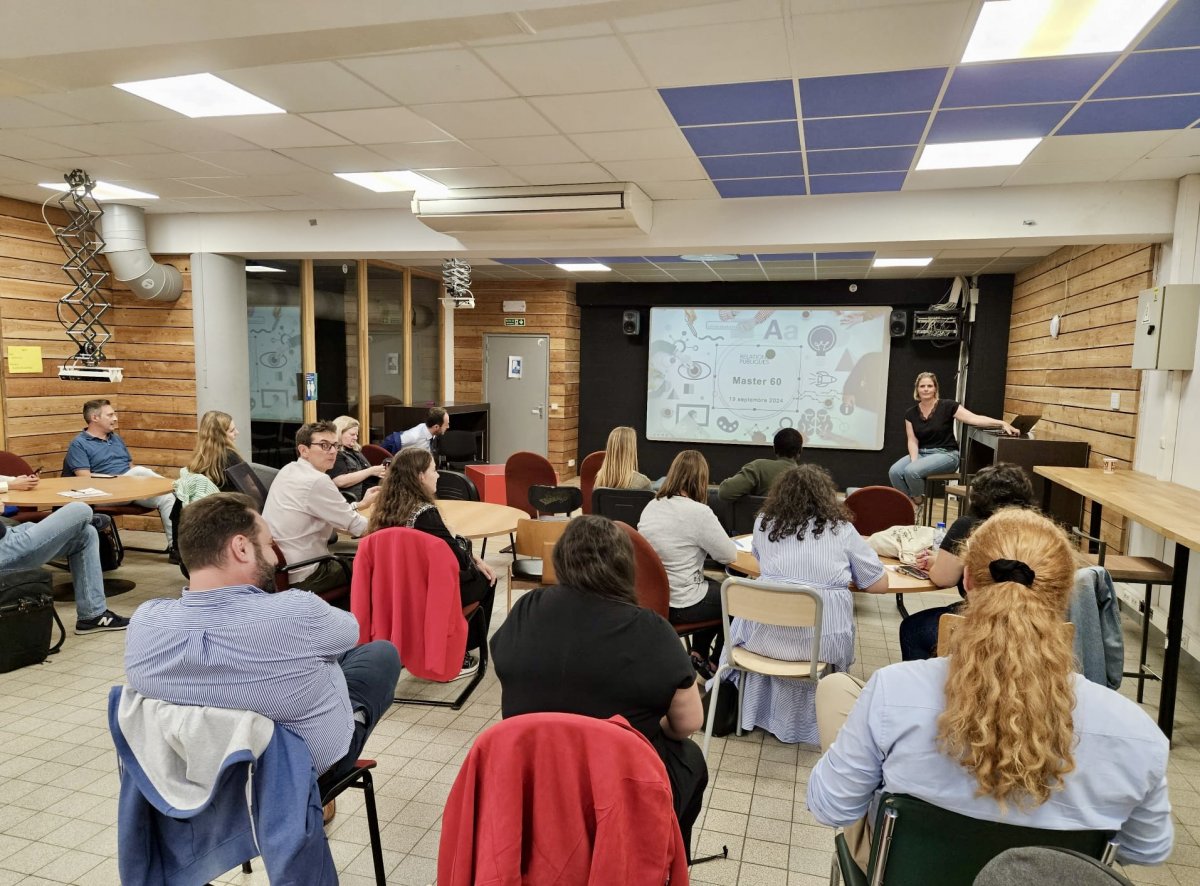
The Master’s 60 in Cultural and Social Communication
For this first edition, the M60 programme in MaCSC has already attracted more than twenty motivated and knowledge-hungry students.
The teaching team brings together inspiring individuals already operating at the heart of the profession's developments. For example, Laetitia Huberti prepares meetings with the heads of various iconic venues (Flagey, Bozar, Kanal, etc.), while Virginie Cordier invites students to create a charter of commitment and values in her governance course.
The project thesis process will be informed by the ten complementary courses offered as part of this training, a personal portfolio, and regular monitoring. This will fuel and inspire participants' projects!"
The Master’s 60 in Advertising
The first intake of the Master's 60 in Advertising programme with a staggered schedule was memorable, dynamic and inspiring. Students were welcomed by the teaching staff and Laureen Donadieu, the Master's coordinator, who introduced them to the philosophy behind the Master's.
The goal? To leave with a complete toolbox to build their own communications career path. After a round of icebreakers and a friendly drink, the first connections between students and professors have already been formed. The initial courses have begun, and enthusiasm and personal projects are already flourishing!
